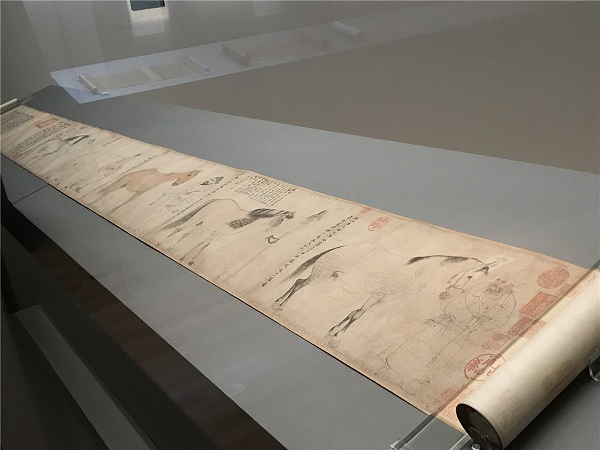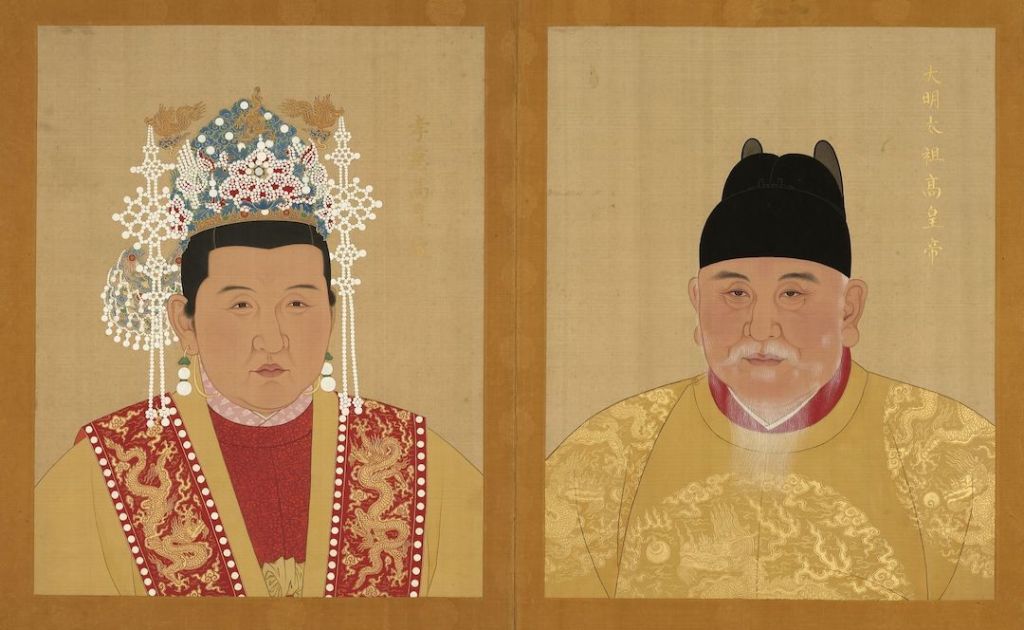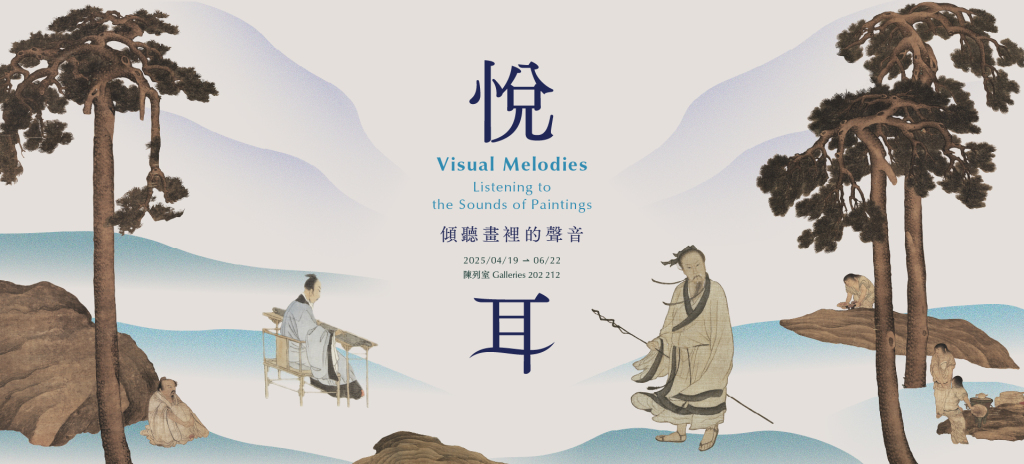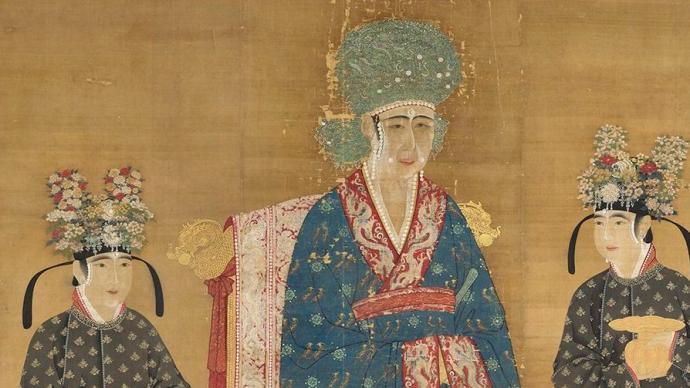
The National Palace Museum in Taipei once exhibited images of emperors and queens in the Nanxun Hall, among which the images of concubines from the Song Dynasty are quite eye-catching.
In the Song Dynasty, there were five female protagonists who were called under the curtain, namely Zhenzong Empress Liu, Renzong Empress Cao, Yingzong Gao Empress, Shenzong Xiang Empress and Zhezong Meng Empress. Although they have been hanging the curtain for different lengths of time and the political situation is very different, Song people have different or greatly changed evaluations of them, but there are some things in common. ambition.
Empress Liu has been in power for the longest time, and she also created the forty-year peace and prosperity of the Renzong Dynasty. In the official history and novel notes written by Song scholars, she is also the most slandered. Even the highly rated Empress Cao and Empress Zhezong Meng were accused or suspected of deposing the emperor without authorization, and the accusation against Empress Yingzong reached a peak, and the title of Empress Dowager was almost abolished. Carefully read the writings of the scholar-officials about them, and it is possible to observe the social gender concept at that time.
1. The Circulation of the Statue of the Empress in the Song Dynasty
There are images of emperors and queens in the Qingnan Xun Hall, which are now in the National Palace Museum in Taipei. There are 37 scrolls of portraits of emperors and queens in the Song Dynasty, including 11 queens. I searched the library and found only one Shanghai print at the beginning of the last century. Due to the printing conditions at that time, the print was very vague. In recent years, the National Palace Museum in Taipei has published a high-definition album, which has allowed ordinary scholars to see its true nature.
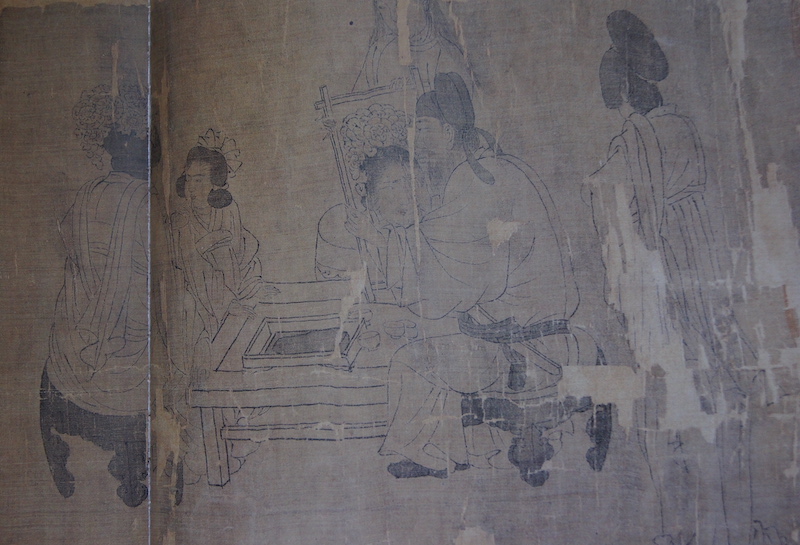
Figure 1 "Picture in the Palace" by Zhou Wenju in the Southern Tang Dynasty
In the Tang Dynasty, painters were often called into the palace to take pictures of women. For example, Zhao Deqi "and the concubines and imperial concubines painted on the Chaozhen Hall are very exquisite. Zhaozong likes them and moved them to the Hanlin to wait for the edict." Zhang Xuan also painted a large number of images of Tang palace women. Zhou Wenju's "Painting in the Palace" of the Southern Tang Dynasty (Fig. 1) is now generally considered to be a copy of the Song Dynasty. It is now in the possession of a section of Harvard University in the United States. It can be seen that a court painter is painting a portrait of a lady. At least in the middle of the Northern Song Dynasty, it was quite common for scholar-bureaucrats to set up shadow halls for the dead. Han Qi's wife Cui Shi's parents died, "image is a serious matter, as for life." Sima Guang once said that it doesn't matter if a man has a portrait when he is born; If you die, how can the painter go straight into the deep room, uncover the silk that hides his face, hold a pen to look at the picture, and paint its face? This is especially indecent and should not be used." But he did not dare to criticize the royal image worship.
It seems that it is not taboo for scholars to be painted during their lifetime.
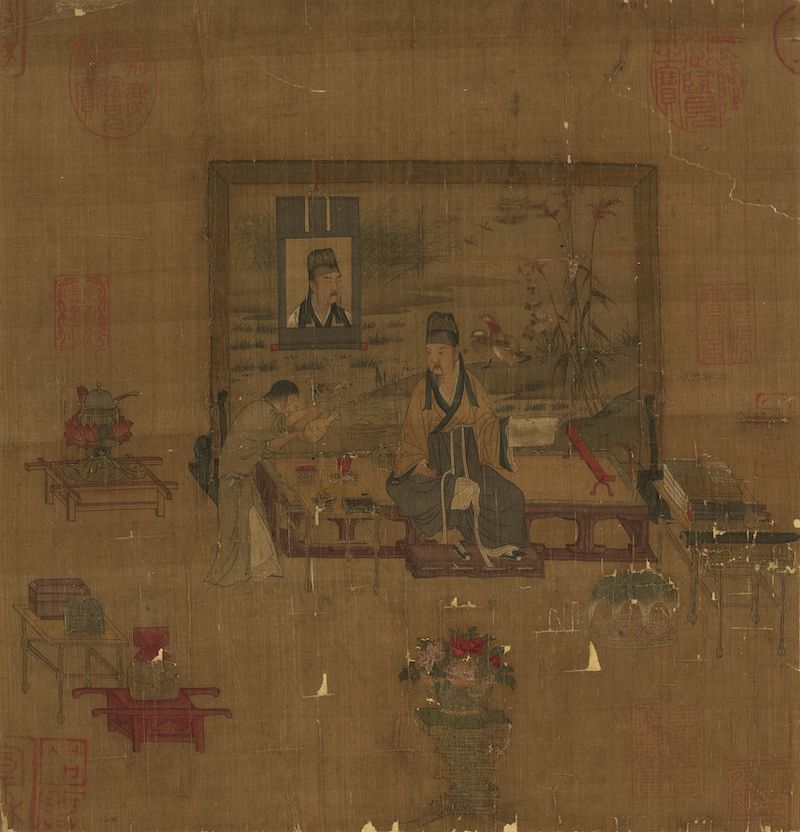
Figure 2 Anonymous figure in Song Dynasty Collection of the National Palace Museum, Taipei
Figure 2 shows a picture of an anonymous figure in the Song Dynasty hidden in the National Palace Museum in Taipei. It depicts a literati sitting on a couch with a scroll hanging on the screen behind him. At least it shows that Song people do not regard hanging up images as taboo. When Lu You learned that his image was painted on the fan, he wrote a poem: "Do you know about Wu Zhong's recent affairs? The family of the fan is painting Fang Weng." When taking pictures, the scholar-officials often wear Chinese clothes to show dignity, and they seem to prefer sitting postures. picture. Su Shi said, "I'm sitting in a robe and staring at one thing, and he is restrained and restrained, how can he see the sky again?"
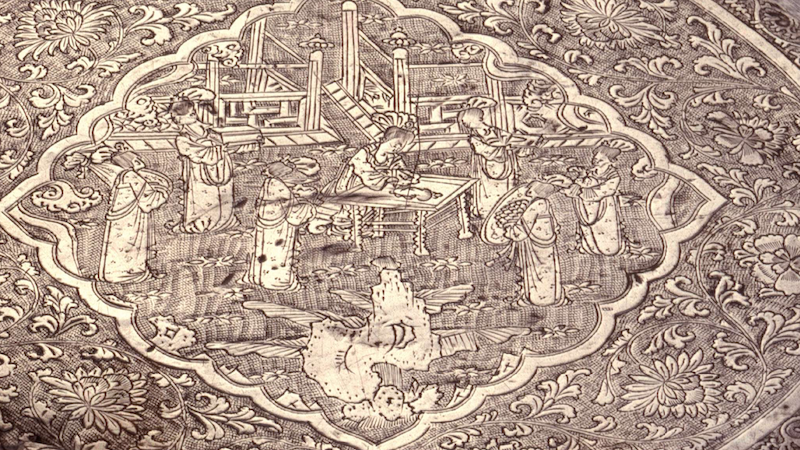
Figure 3 Part of the lid of the Northern Song Dynasty silver box in the collection of the British Museum
Figure 3 shows part of the lid of a Northern Song Dynasty silver box in the British Museum. A courtyard is painted in the center of the box cover, in the center is a lady facing a mirror and a self-portrait. On the opposite side are three maids, one holding a mirror. The three ladies are watching from behind, and the outlines of the figures can be seen on the canvas. This should be the earliest pictorial evidence of a woman's self-portrait.
The documents also contain picturesque records of the empress of the Song Dynasty during her lifetime. In the early Song Dynasty, Taizu ordered Wang Ai to "write the royal appearance of Xuanzu and the Queen Mother in Dingliyuan" . During the reign of Emperor Renzong Jingyou, a monk bought a statue of a bodhisattva, guessed it was flowing out of the palace, and then held it and presented it inside. The eunuch was shocked when he saw it, and said that the two worshipers under the statue were the real faces of Empress Liu of Zhenzong and Emperor Renzong. "Don't set up a small Buddhist hall in Zhangxian Pavilion to make offerings, and burn incense every morning to worship."
According to literature, the statues of emperors and queens in the Song Dynasty had both three-dimensional statues and flat portraits. Most of those called "Shen Yu" were statues, and those called "Yu Rong" were mostly paintings, but sometimes they were not so strict. People are confused. Since the Northern Song Dynasty, there have been more than one place for the worship of the emperor and the queen.
One of the locations is the Taimiao Temple. The enshrined wooden "God Lord", which queen deserves the emperor of the current dynasty, has been the focus of debate in the past dynasties. The second location is the temples in various places, which also have queen statues. The third place is Jingling Palace. The Jingling Palace of the Northern Song Dynasty was located in Xianyuan County, Yanzhou (now Qufu, Shandong Province). Shenzong "in the fifth year of Yuanfeng, the palace was built as eleven halls, and it was welcome to watch the gods and imperial palaces in the Beijing Temple, and the empress of the emperor was treated with the courtesy of the king of the time." The fourth is the palace of the gods, "the old name of Qinxian Xiaosi Temple". The fifth place is Tianzhang Pavilion, which contains more imperial statues. The sixth place is the Emperor and Hou Mausoleum.
There were frequent wars between the Northern and Southern Song Dynasties, and the statues of the emperor and the queen were lost. After the court of the Southern Song Dynasty was settled, they collected and identified Feng'an. The "Guange Records of the Southern Song Dynasty" says that it collects "four hundred and sixty-seven scrolls of Yurong". It can be seen that the number of collections is quite large.
The Yuan army destroyed the Song Dynasty, and Wang Yun wrote in the early Yuan Dynasty: "Up to the first month of Yuan Bingzichun, Jiang Zuoping. In the twelfth month of winter, pictures and ritual utensils were sent to the capital." Emperor. The Queen of Huaiyi, Li Shi, used purple powder to paint her cheeks with two leaves from the eyebrows, straight nose bridge, and a line of true color on the top and bottom, like a purple gauze." Records about the strange makeup of the Queen Zhenzong. , which is consistent with the paintings in the Xun Hall in the south of the Qing Dynasty. It seems that he did see the original paintings, which also proves that these paintings are indeed from the Song Palace. The old paintings from the Yuan Dynasty were passed on to the Ming Dynasty, and they were well preserved in the Ming Dynasty. From the Ming Dynasty to the Qing Dynasty, it was not until the 12th year of Qianlong (1747) that these portraits received attention. In the 20th year of Jiaqing (Yihai 1815), Hu Jing took the test. Therefore, most scholars believe that the image of the Emperor and Empress of the Song Dynasty in the Nanxun Hall has been handed down and is quite reliable.
The image of the empress of the Song emperor may have been taken from the palace of the gods and the imperial palace. The existing images all see one emperor and one empress. There is no doubt about one emperor, and one empress is interesting. There are often many queens in each dynasty. what about?
2. The inescapable Zhenzong Empress Liu
Among the concubines of the Song Dynasty, Empress Liu of Zhenzong was the most eye-catching, and she seemed to be a topic that could not be avoided after the middle of the Northern Song Dynasty. However, Song's account of her is very subtle.
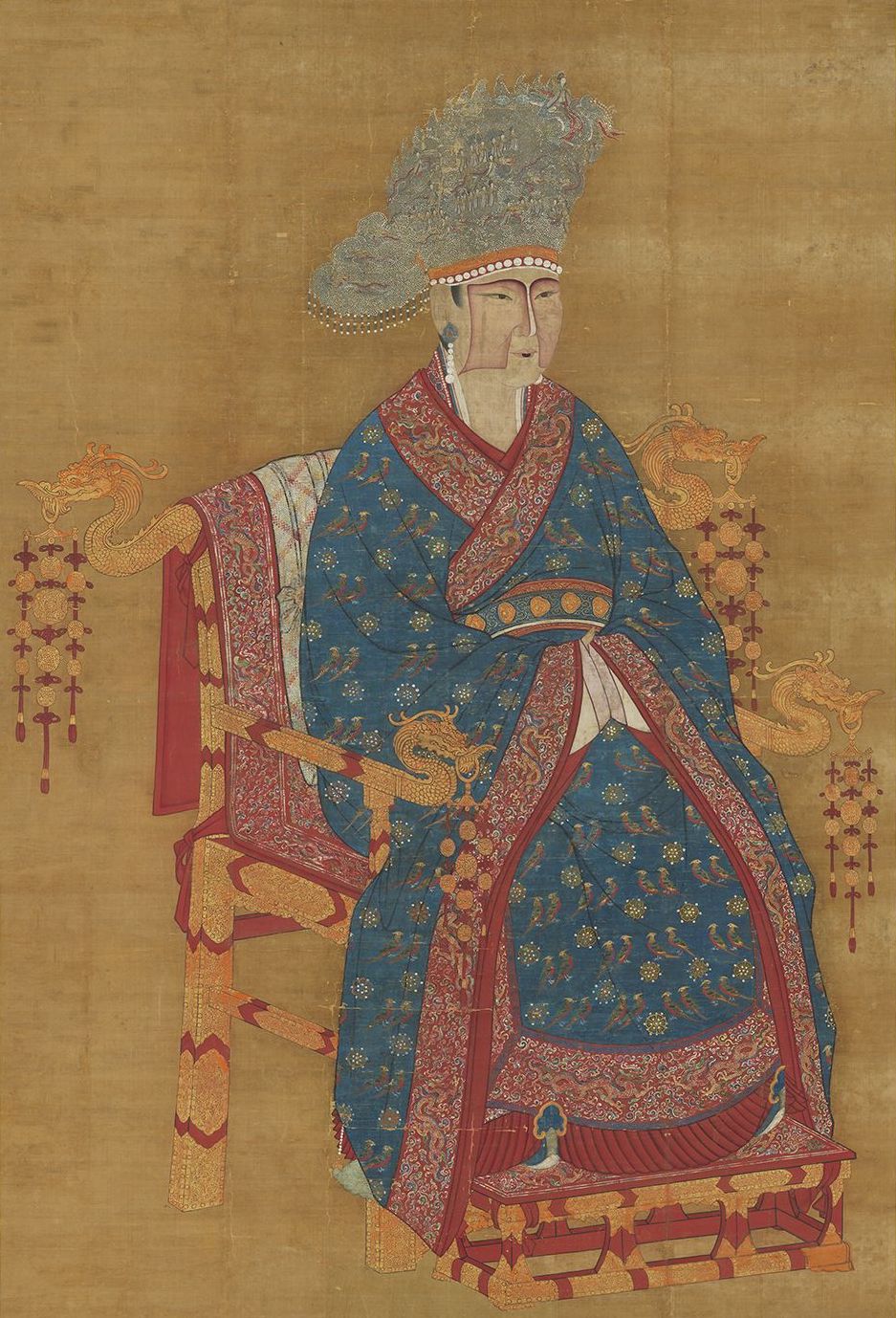
Figure 4 Song Zhenzong's reclining axis in the collection of the National Palace Museum, Taipei
Figure 4 shows the statue of Empress Zhenzong in Nanxun Hall. The Zhai clothing worn by the queen is very gorgeous, but compared with the portrait of the young queen, the fringing tone of the neckline and cuffs is more calm. The dark blue belt matches the dark navy blue Zhai clothing very well. It also rises higher, so the neck and chest are wrapped more tightly. The nine-dragon hairpin and phoenix crowns worn by the ten existing queens are slightly different, and the phoenix crown of Empress Zhenzong is particularly special. The number of decorative pearls has been greatly reduced, and the pearls around the ears and the neckline of the chest have disappeared, leaving only a circle around the crown and no pearls on the face.
Whose photo is this like?
There are five before and after Empress Zhenzong, the earliest is Empress Zhang Huaipan, who married into the palace as a prince and concubine, and Zhenzong ascended the throne. Followed by Empress Zhang Muguo, Jingde died in four years. Both were 22 when they died. This portrait of the queen should be around fifty years old, and it is obviously not the Pan family and the Guo family.
Zhang Huiyang was the last to be crowned the queen. In the second year of Mingdao, Empress Dowager Liu, on her deathbed, honored her as the empress dowager. In the Northern Song Dynasty, she was not eligible to enter the imperial temple. Then this picture can't be Yang's.
Some scholars believe that the portrait is painted by Concubine Zhang Yi Li Chen, the biological mother of Renzong. This statement comes from the records of Wang Yun, a native of Yuan Dynasty. However, Wang Yun even spelled his posthumous title incorrectly, and it seems that he did not check it carefully. After Renzong was in power, Mrs. Li was posthumously named Empress Dowager. When Mrs. Shenzong was in power, Mrs. Li and Mrs. Liu shared the true clan of Taimiao, but they were still ranked last. Besides, Mrs. Li is 17 years younger than Mrs. Liu, so it is impossible for him to be the owner of this gorgeous portrait. "Song History" is rewritten based on the history of the Song Dynasty. The existing "Hou Fei Zhuan" emphasizes the difference between concubines and masters. It not only excludes the concubines who were pursued in the previous dynasty, but also does not recognize the posthumous title given to the biological mother by the concubine emperor. Therefore, Li's name is "Li Chen" Concubine".
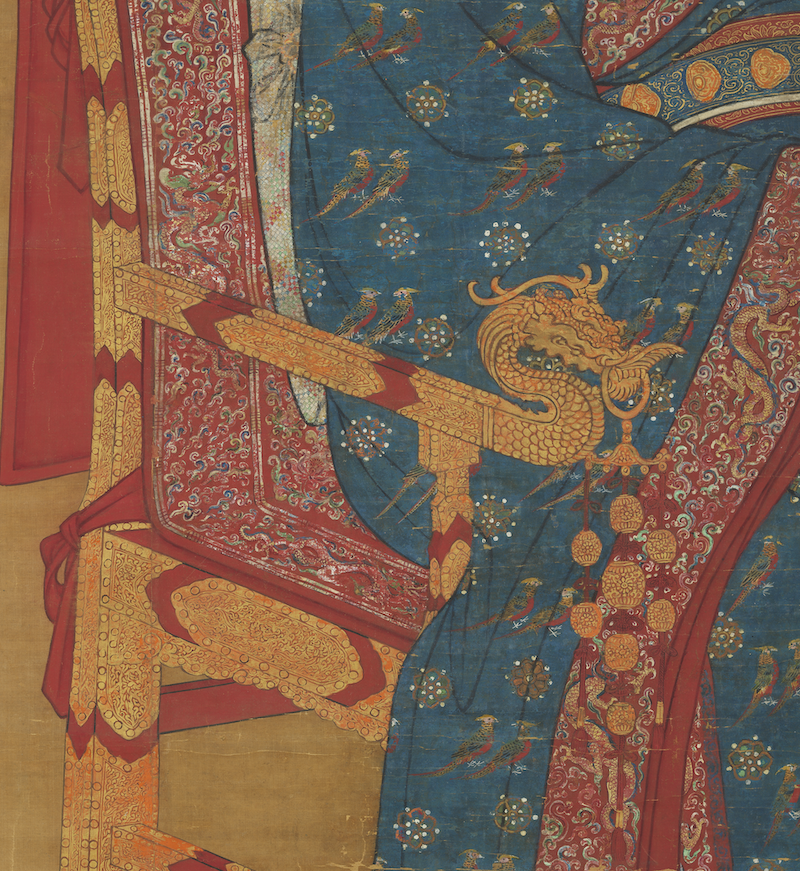
Figure 5 Details of the armrests of the seat of Song Zhenzong's reclining statue
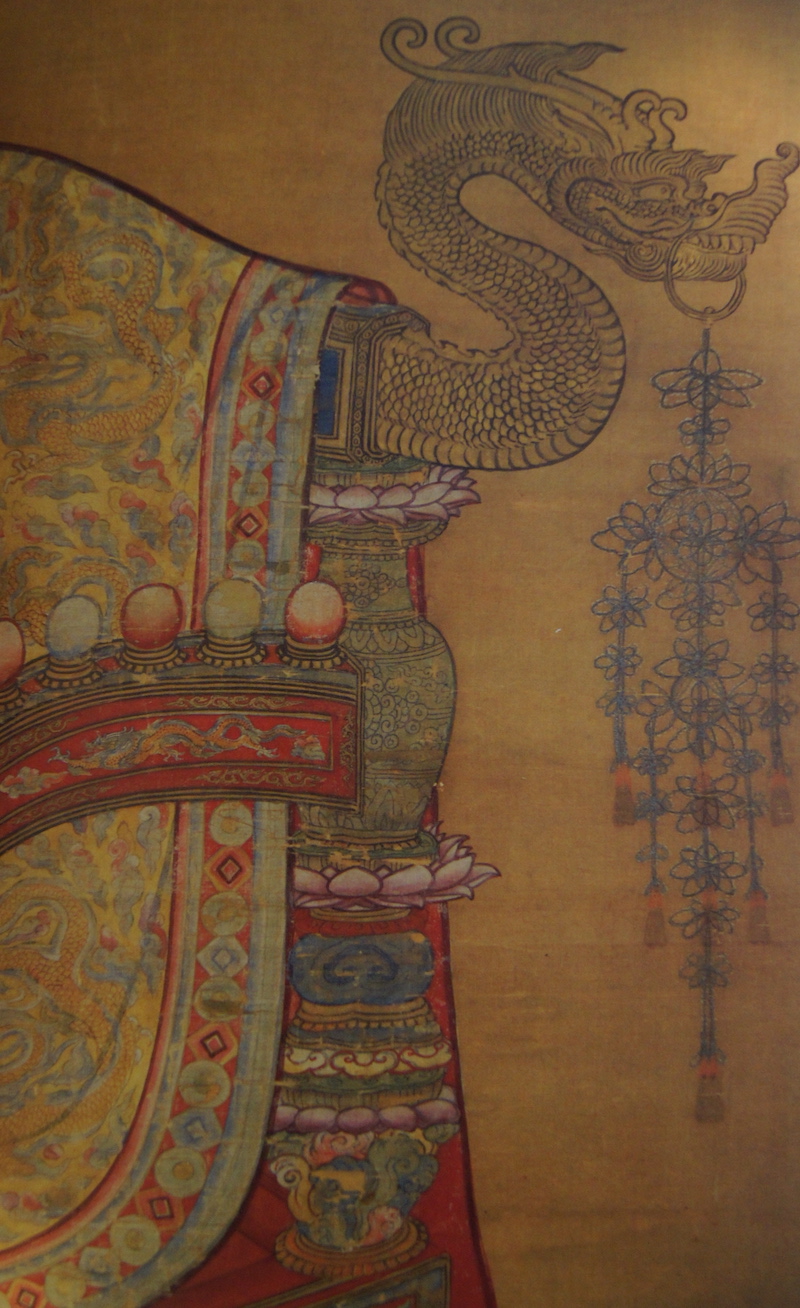
Figure 6 Song Xuanzu's seat armrest details
The protagonist of this portrait is most likely Empress Liu of Zhang Xianmingsu. Empress Liu, who died at the age of 65, was the longest-lived queen from Zhenzong to Renzong. The image has several special features. First of all, among the ten seated queens, the seats of the other nine queens are all armchairs without armrests, while the seat of Empress Zhenzong is a throne with armrests, and the heads and armrests are decorated with dragon heads (Fig. 5). Looking at the statues of the emperors, most of the emperor's seats have dragon heads carved on their heads, and the thrones with armrests only see the statues of Xuanzu and Taizu (Figure 6). This should not be accidental. Secondly, from the perspective of sitting posture, the other queens all sit on the front of the chair with their waists straight, while Empress Zhenzong's sitting posture is farther back, almost leaning on the back of the chair, which is more casual. Again, like the lilac block on the main face, there is a fluttering feeling, and the lower left corner is obviously outside the face, which should not be a strange makeup, but a veil (Figure 7). Empress Liu once went to the Wende Hall of the Waichao to receive the title of Empress Dowager, and also visited the Taimiao in person. She could not hide behind the curtain all the time, and she might wear a veil at this time.
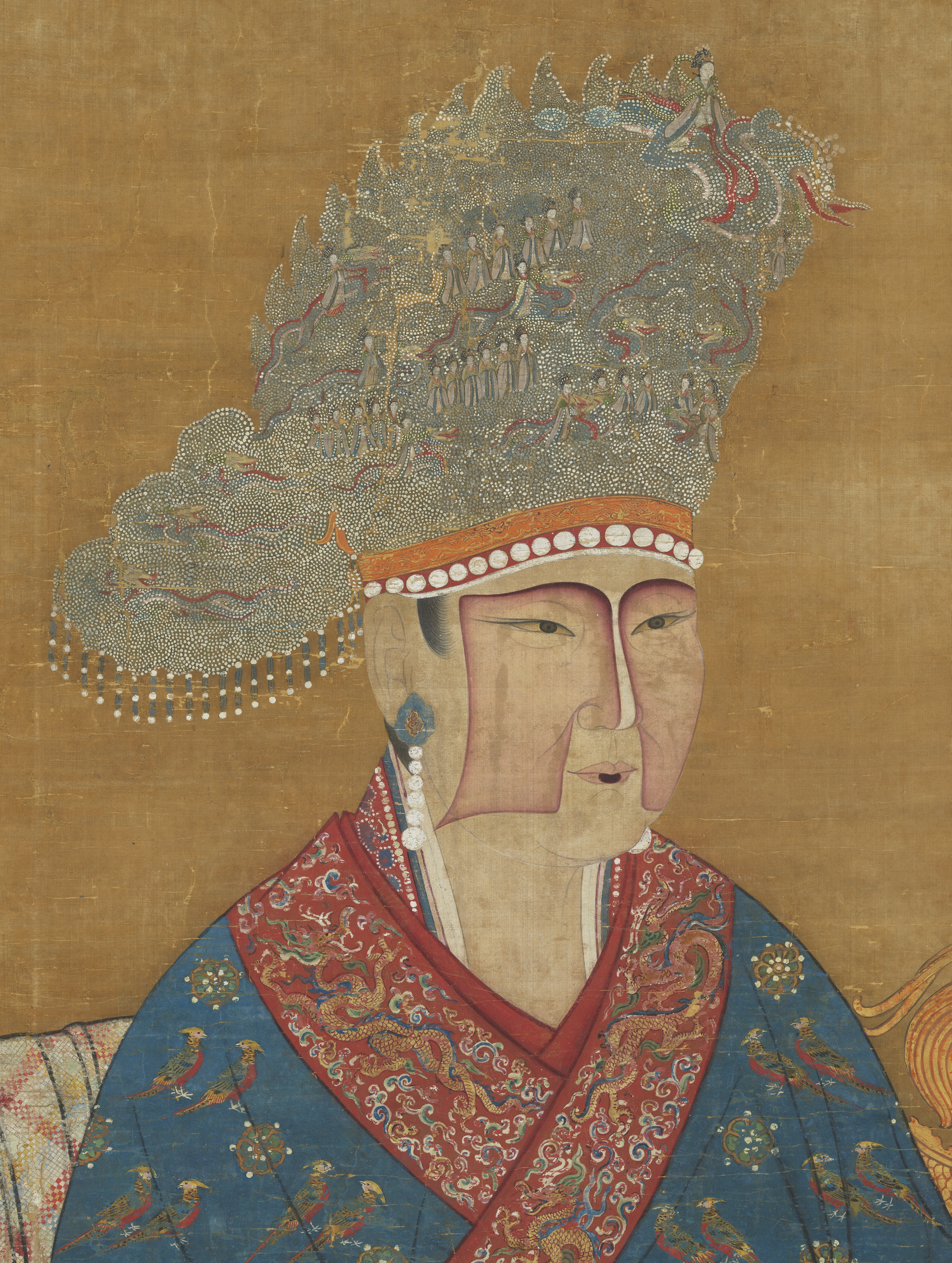
Figure 7 The recoil of Song Zhenzong (part)
Although Empress Liu was in power for the longest time, she also initiated the 40-year peace and prosperity of the Renzong Dynasty, and she was the most slandered in the official history and novel notes written by Song scholars.
Dissatisfaction with Liu was first directed at his origin. Among the five empress dowagers, she was the only one from humble background, and the only one who was enshrined as a concubine. The records of her life experience in the official history, if translated into straightforward language, are: She was born as a geisha, her family background is unclear, her surname is suspicious, and her relationship with Gong Mei is unclear. This text was first seen in Sima Guang's "Journal of Sushui". The gossip in private notes was copied into the official history, and the contempt of the scholar-officials was beyond words. When Zhenzong decided to name Liu as his queen, it was opposed by almost all high-ranking officials . .
There are more ridiculous anecdotes in private notes. Liu Zong knew about Kaifeng Mansion, and one day Zhenzong said calmly: 'Your Highness is close to the Zhonggong, and it is planned to be dispatched by your Highness, should you know?' Zong changed his color and wrote Qin Yin: 'Your Majesty, this minister was originally from the Hezhong Mansion, out of loneliness and coldness. I have never had any relatives in the palace. 'Not long after I came to know Luzhou." And Liu Ye ascended to the No. 1 Jinshi, right to Kaifeng Mansion, and called him alone, "Then said: 'I know Qing's famous family for more than ten generations, and I want to see Qing's family tree. I'm afraid I'm the same clan.' Ye said: 'I don't dare.' I asked him later, the degree was inevitable, because your Majesty was right, I came out for the wind and dazzled. I begged to know Henan Prefecture." "Wind dizziness" are similar to sketches. It is conceivable to imagine stories such as rumors of scholars and officials after tea and dinner. It can be seen that the scholar-bureaucrat who recognizes his kinship with Empress Liu will be despised by his group. But is Liu Shi really going to ask the doctor so lowly and repeatedly?
In the records of Liu's family, more emphasis is placed on how she transcended the ritual system during the period of her weighing system, and how the scholar-bureaucrats resisted. Empress Dowager Liu was most criticized by Song Dynasty and later generations for her own construction of the Taimiao Temple. In the early Qing Dynasty, Wang Fuzhi couldn't hold back his anger: "Ren Zongli, Empress Liu, who is small and talented, listens to the government under the curtain, and even obeys Yanmian to see in the temple, messing up the distinction between men and women, and humiliating the ancestral temple." That is, Liu's family wanted to use the emperor's Ceremony to Tai Temple. It is said that the ruling and ceremonial officials repeatedly argued, but Empress Liu refused to listen to them, and it was all stopped by Xue Kui's witty words: "Xue Jian Su Gong, who is from Guanyou, his tone is clear and straightforward, and he does not talk in words. On the day of the audience, the Han children worship evil? The daughter worships evil? 'Ming Su has no answer. It's an evening report." However, according to the official history and archives, Liu's family still served Gongmian to worship the Taimiao in the end. There are many records of scholar-officials only saying "anti-Liu", exaggerating their results. In fact, the author also wants to know, whether Liu is a man or a daughter? There are many female officials in the Song Palace, and they all worship men on weekdays. Since Mrs. Liu wears men's clothing, it is very likely that they will be "Han's worship".
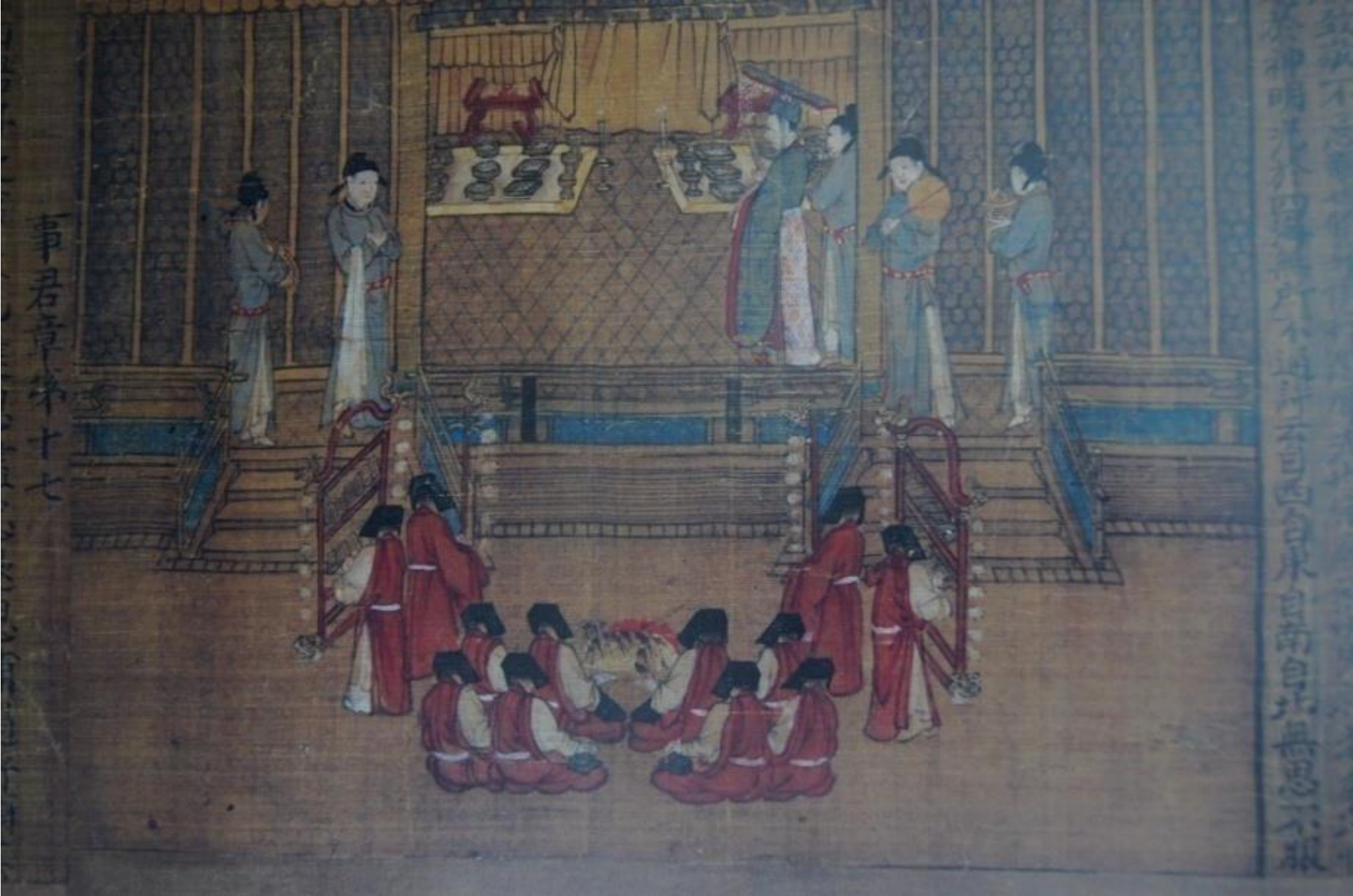
Figure 8. The Sixteenth Part of "The Book of Filial Piety for Women" in the Southern Song Dynasty, collected by the Liaoning Provincial Museum
Figure 8 is the 16th edition of the Southern Song Dynasty "The Classic of Filial Piety for Women" in the collection of the Liaoning Provincial Museum. The accompanying text for this volume is "The Book of Filial Piety". Except for "The Concubine of the Empress", most of the pictures and texts are accompanied by the text. This picture is accompanied by the text "The Book of Filial Piety: Induction Chapter". , Five chapters are embroidered on the red Luo skirt, which should depict the situation of the emperor of the Song Dynasty offering sacrifices to the Taimiao Temple. The figures in the picture are all male.
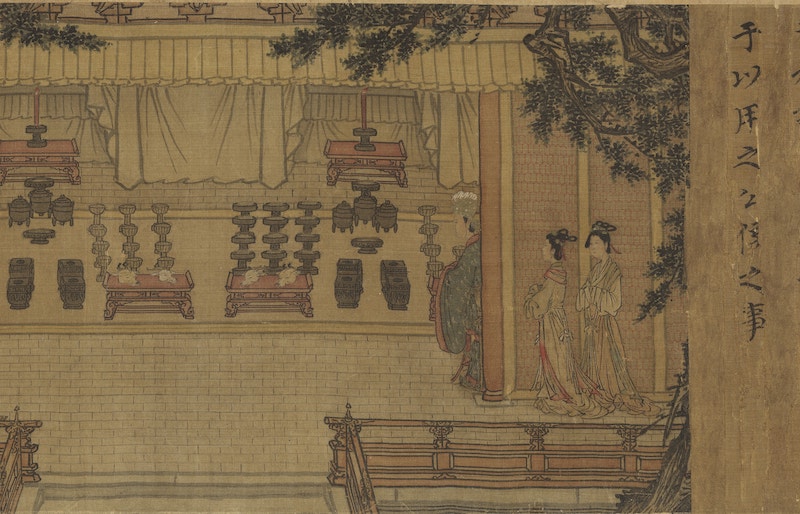
Figure 9 The Emperor's Seal of the Lady's Book of Filial Piety in the National Palace Museum, Taipei
Figure 9 shows the "Book of Filial Piety for Women: Bang Jun Zhang" in the National Palace Museum in Taipei. The scene is close to the picture above, the main hall is solemn and solemn, the curtain is hanging, the candlesticks on the small table, the lower row is full of ancient ritual utensils and pig and sheep heads, etc. In the lower right corner, a woman wearing a nine-dragon hairpin and a phoenix crown and a Zhai robe can be seen standing with hands and hands. Her dress is the same as that of the empress of the Song Dynasty. The maid wears a ru skirt and silk. This should be the scene when the queen was preparing for the sacrifice. The article in "The Book of Filial Piety for Women: Bangjun Zhang" said: "I dare not obey the legal clothes that are not ceremonial" , which immediately reminds people of Empress Liu of Zhenzong. If you add the charge of persuading the Empress Dowager to enter the political enemy, you can lead to the death of the political enemy; conversely, claiming that you have stopped the ambition of the Empress Dowager Liu can also be praised. The most serious accusation is that the Liu family deposed the emperor without authorization. It is said that Empress Liu claimed to have dreamed that the eldest son of Zhenzong, who died prematurely, was entrusted to be born in King Jing's mansion, that is, "the so-called five-phase prince, if the empress dowager wants to take him into the palace and raise him, Lu Yijian will fight for him, but he will stop." Like the story of the burial of Renzong's biological mother, these lost Everything came from Lu Yijian's family. Without Lu Yijian, there would be no Song Renzong.
When the Empress Dowager Liu was in full swing, Fan Zhongyan and other officials did need courage. "When the Empress Dowager collapsed, the speakers would often criticize the current affairs." Fan Zhongyan persuaded him: "It is better to cover up the small reasons and make the whole great virtue." Renzong Renzong Has issued an edict to stop such attacks. Judging by human nature, those who slapped horses and dared not speak during the Empress Dowager's reign should have transformed themselves into "anti-Liu" warriors.
Indeed, as the Xianxing Research Institute said, scholar-official politics had enough restrictions on the Empress Dowager's rule. At that time, the bureaucracy of the scholar-officials was quite mature, and the restrictions on the empress dowager could be regarded as an extension of the restrictions on imperial power. Moreover, the accounts of scholar-bureaucrats' opposition to Empress Liu were all written after Renzong's pro-government, and some stories could not help but add fuel to the story until they were forged. In this regard, posterity should be vigilant. The Renzong Dynasty was stable and prosperous for 42 years, and the foundation was laid when the empress dowager called the system. In historical books, there are very few records of political activities of such a capable female politician as Liu. Even positive descriptions emphasize her motherhood rather than her achievements as a statesman.
3. The Fourth Empress Dowager Who Was Coerced by Party Strife
From the middle of the Northern Song Dynasty to the beginning of the Southern Song Dynasty, the four empress dowagers were successively called the system. What is interesting is that there are intricate connections between the four queens, and they are all closely related to the party disputes in the middle of the Northern Song Dynasty.
Among the emperors of the Song Dynasty, Renzong received the highest evaluation. However, the inner palace of the Renzong Dynasty was the least peaceful.
Empress Liu of Zhenzong was very strong, and finally "chosen Empress Guo to be the middle palace. In the end, she was not happy." After the death of the Empress Dowager Liu, the abolition of the queen became a symbol of decisiveness with her predecessors. First, the two beauties Shang and Yang were favored. One day, Mrs. Shang attacked the empress in front of the emperor, "then was very angry, criticized her cheeks, she got up to save her, wrongly criticized her neck, and she was furious. When they entered the house, they all knew that Yan Wen should be abolished by the emperor, and persuaded the emperor. Showing power with claw marks." The emperor displayed scars on his head and neck in the court hall, similar to the couple in Lixiang arguing with each other for jealousy. This kind of picture is very happy.
The scholar-bureaucrats seemed to be more sympathetic to Guo Hou, and Fan Zhongyan and other officials made remonstrances in the palace, in fact, the main purpose was to maintain the order of etiquette. Queen Guo was also criticized badly in terms of female virtue. Sima Guang said: "After Zhang Xian was arrogant and jealous, the harem was not allowed to enter the harem, and the superiors would not dare to criticize him. Zhang Xian collapsed, Yang and Shang entered together, and there were complaints later." It is also natural to say that it is abolished. With the support of Prime Minister Lu Yijian and others, Queen Guo was deposed. A year later, she died suddenly and inexplicably at the age of 24.
Under the pressure of the scholar-official group, in September of the first year of Jingyou (1034), Renzong had to register Cao as the empress. Cao is the granddaughter of Cao Bin, the founding general of the country. The scholar -officials said that she was "born in the Ding family, taught from the public palace", "soft and relaxed in nature, and benevolent in her body. Aid to the history of the country to learn from herself, and the links are round and tolerant" , that is, Born noble, knowledgeable and reasonable. Scholar-bureaucrats have the highest evaluation of Empress Cao's female virtue, however, such a woman may not necessarily be loved by the emperor.
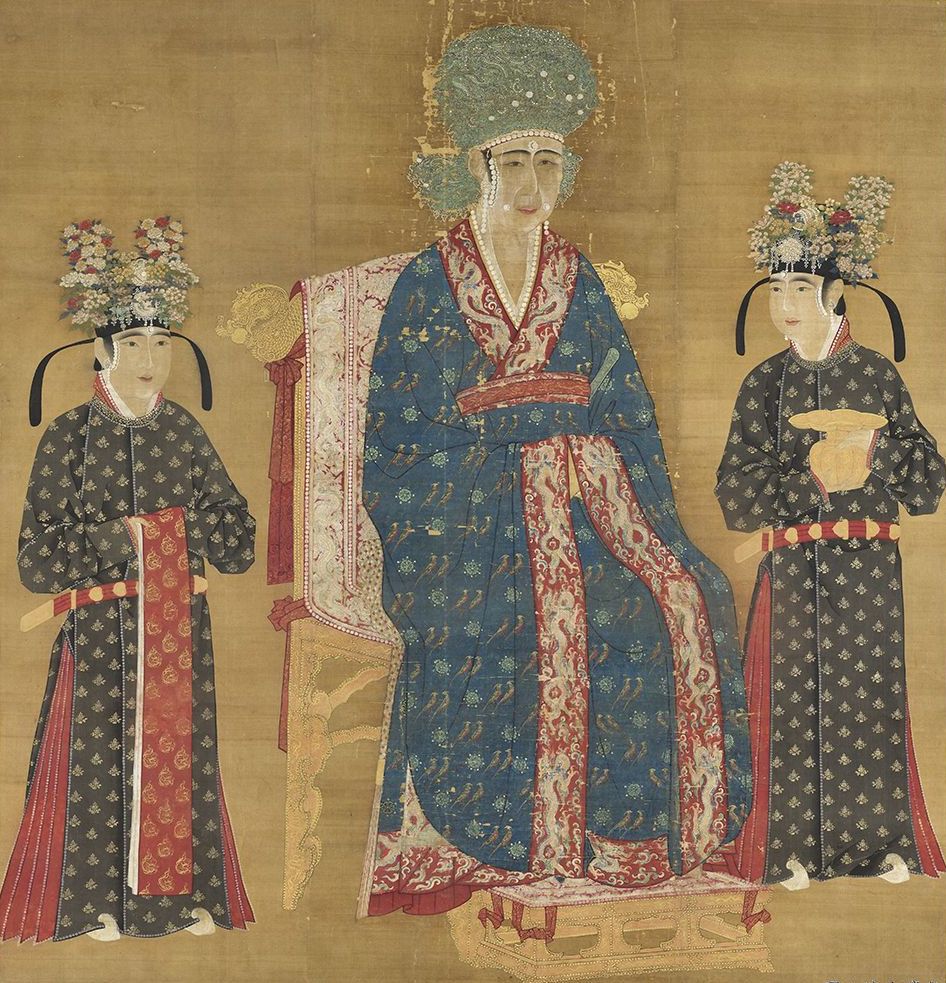
Figure 10 Rear seated statue of Song Renzong in the National Palace Museum, Taipei
Figure 10 shows the statue of Empress Renzong of the Song Dynasty in the Xundian Palace in the south of Qing Dynasty. The queen wears a nine-dragon hairpin and a phoenix crown. The collar of her robe is low, and the embroidered edge of the belt, neckline, and cuffs is bright red, which makes it more vivid. The collar, crown, and earrings are all made of pearls. There are also pearls close to the skin color on the cheeks (Figure 11). The statue is obviously different from other queen statues in two points: one is that the seat is decorated with two faucets; The hostess appears to be younger than Empress Zhenzong, with a long and narrow face, thin cheeks, slender eyebrows and eyes, and her appearance is not even delicate, but her expression is particularly solemn and somewhat rigid (Figure 13). The Renzong Dynasty established three empresses, Guo, Cao, and Zhang. After Guo died, the title of Empress was restored, and Zhang was posthumously named. Guo and Zhang never entered the Imperial Household of the Imperial Temple. This image can only belong to Empress Cao. .
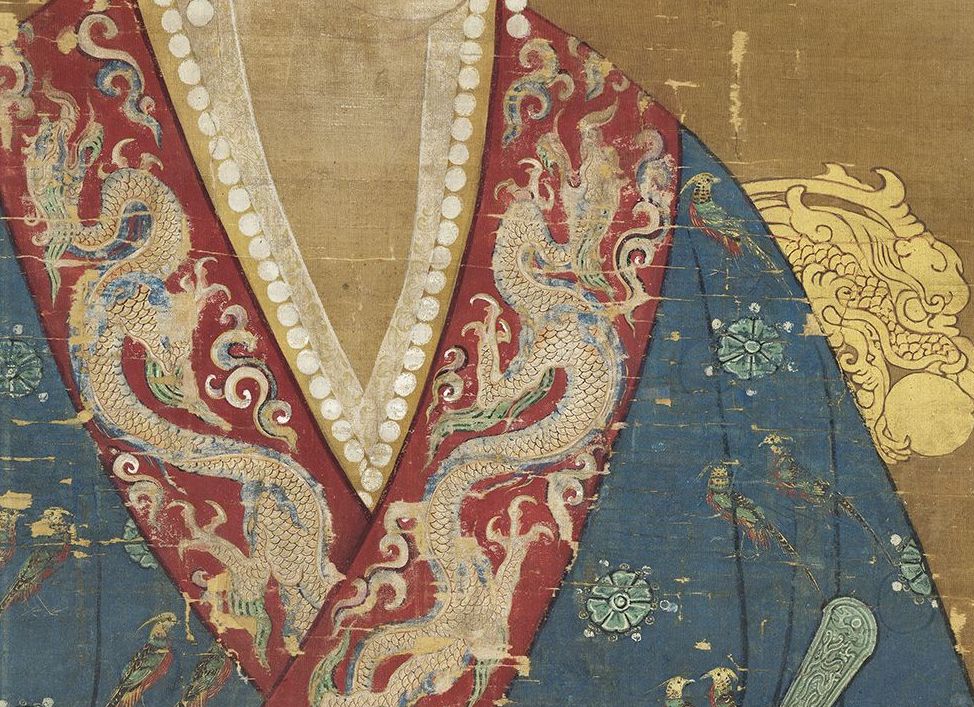
Figure 11 Rear seated statue of Song Renzong (part) Collection of the National Palace Museum, Taipei
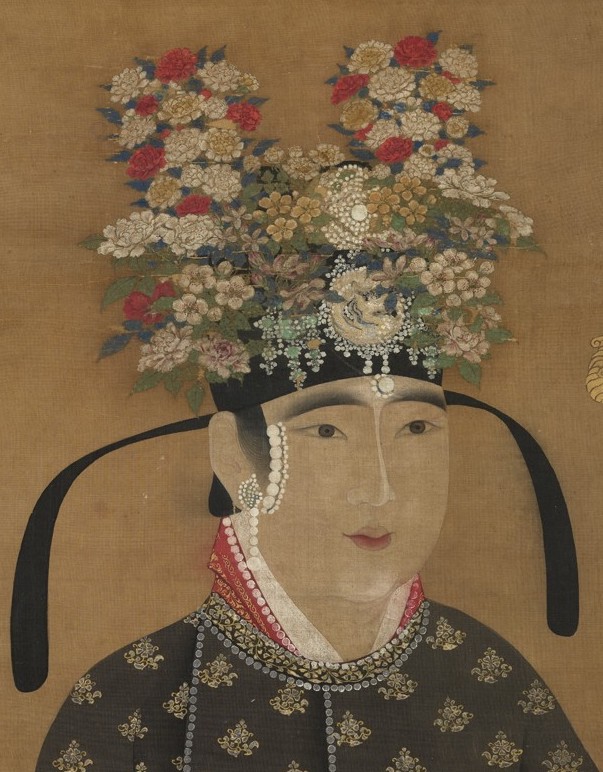
Figure 12 Rear seated statue of Song Renzong (part) Collection of the National Palace Museum, Taipei
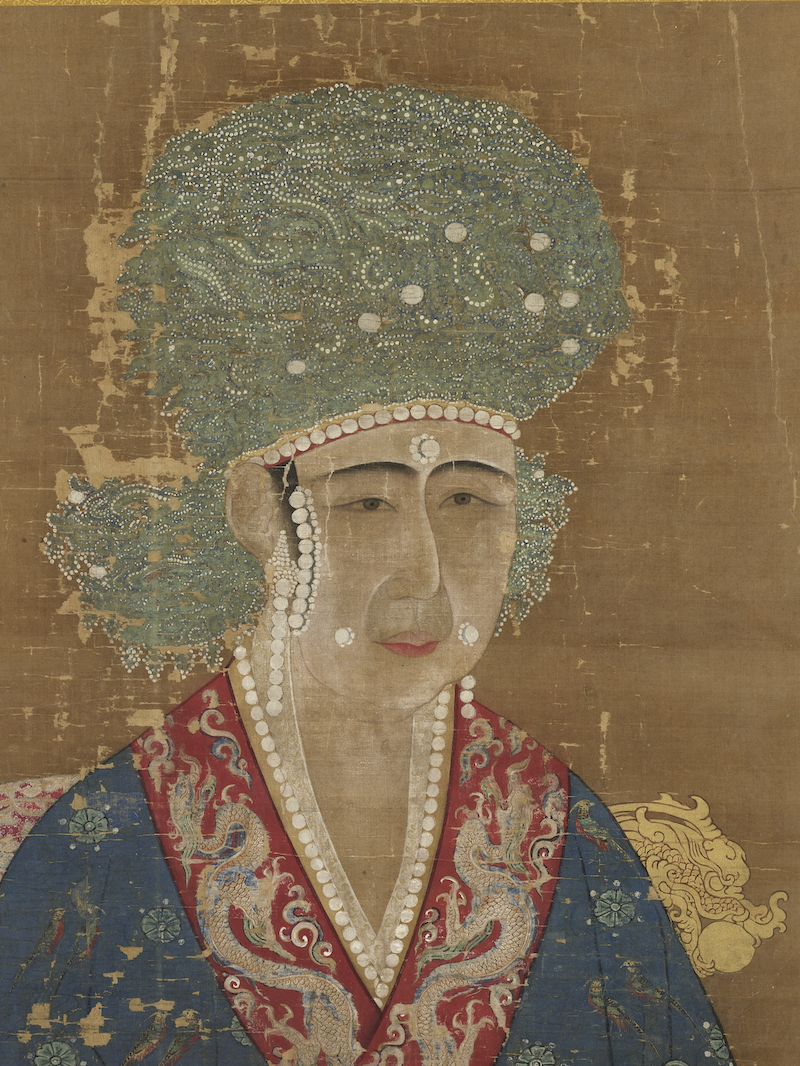
Figure 13 Rear seated statue of Song Renzong (part) Collection of the National Palace Museum, Taipei
Not long after Cao Hou was established, the Zhang family rose to prominence. She was born as a prostitute, and her backer was Empress Dowager Yang, the best friend of Empress Liu of Zhenzong, and she was smarter and more lovely, so she once again formed a pattern of empresses resisting courtesy. Zhang's favor on the arrogant, he once borrowed the empress's ceremonial guard to travel, and Empress Cao readily agreed. "The concubine is happy, and I report back. The emperor said: 'The national cultural relics and regulations, the top and bottom are in order, you will go out, and the outer court will not be placed by you.' The concubine did not hesitate and quit." Emphasize this kind of story of queen forbearance.
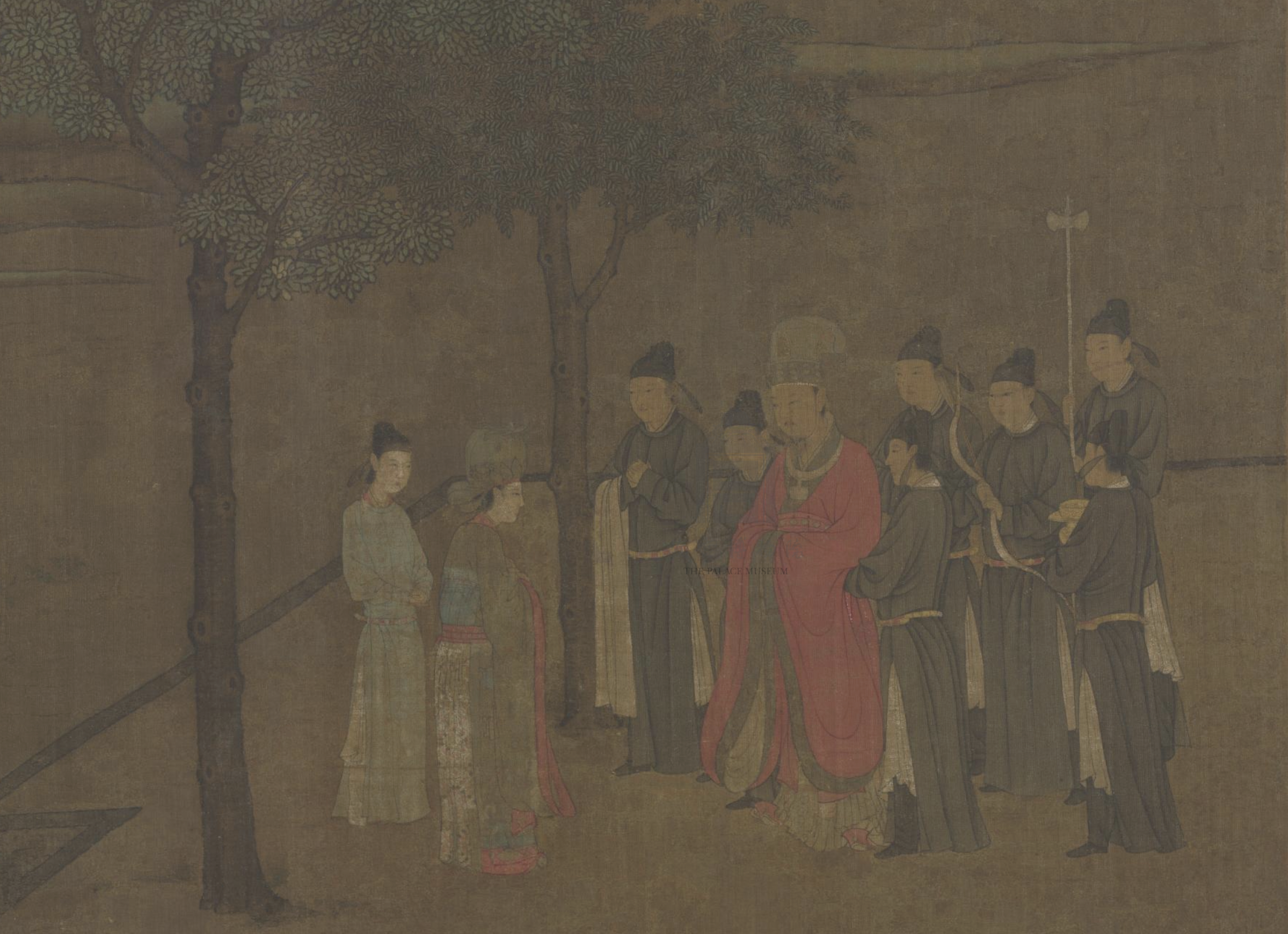
Figure 14 Part of the sage chapter in the Anonymous Song of "The Classic of Filial Piety for Women", collected by the Palace Museum
Figure 14 shows the sage chapter of the Anonymous Song of the Book of Filial Piety in the Palace Museum. In this picture, the emperor is dressed in court clothes, surrounded by eunuchs holding ceremonial items, it seems that he has just entered the court. Dressed in a wide-sleeved dress with only one maid, the queen greeted her outdoors with respect. The queen seemed to be whispering greetings, while the emperor's eyes were cold, and he returned the salute condescendingly. As depicted in the picture, such a queen meets the expectations of the scholar-officials.
Empress Cao is like Xue Baochai in the Grand View Garden. She is gentle and cautious on the surface, but smart in practice. She has been looking for beautiful women to bring to the emperor. When Fan Satir knew about Kaifeng Mansion, a wealthy citizen complained that his daughter-in-law had been forced into the palace. Fan Satir entered the palace and asked, "Renzong said: 'The queen once said that she has a daughter who is very beautiful, and I still haven't seen it.'" In At Fan Xi's insistence, Renzong decreed to return his daughter. Empress Cao also had an adopted daughter, "Fan Guanyin, the adopted daughter, was fortunate to Renzong, and Wen Cheng suffered from it." Wen Cheng was the Zhang family. During the severe drought that year, Renzong prayed for the rain, and Zhang's party took the opportunity to invite the palace maids, and finally pushed Fan out of the palace. Once a major event comes, Cao is also very decisive. On the eighteenth day of the first lunar month of the eighth year of the Qingli calendar (1048), several soldiers of the guards rebelled. Empress Cao calmly arranged his servants to quell the rebellion. There was a palace maid who had something to do with the rebels and prayed that Mrs. Zhang would be spared death. Cao "would be wearing clothes and clothes, please discuss the law, saying: 'It's better, there's no way to clear the ban.' , move a few moments, and the soldiers will be executed." This was indeed a very strange mutiny, and it was probably related to the confrontation of the empress. Renzong was not grateful for Empress Cao's escort, but took the opportunity to respect Zhang's family. The ceremony was held in the Wende Hall. Empress Liu of Zhenzong visited the hall twice and was criticized constantly. Now that the ceremony of concubine was held here, the scholar-officials did not dare to say more. After Renzong wanted to depose Cao Cao several times, he was only concerned about the objections of the scholars and officials and did not implement it.
In the first year of Zhihe (1054), Concubine Zhang died suddenly at the age of 31. In grief, Emperor Renzong named her the empress and gave her the posthumous title Wencheng. Renzong always disliked Empress Cao, and later, Zhang's adopted daughter Zhou was favored. On the first day of the first month of the first year of Jiayou (1056), Renzong suddenly had a stroke. During his illness, he shouted: "The empress and Zhang Mao are conspiring against each other." Wen Yanbo explained this by raving about the emperor's illness. People today may think that the Cao family does have a conspiracy. Of course, politics is not about morality, but about courage and skill.
In the eighth year of Jiayou (1063), late at night in Xinwei in March, Renzong collapsed suddenly, and in the early morning of the next day, his nephew Yingzong ascended the throne under the witness of scholar-officials. When Yingzong came to the throne, he had a mental attack, so the Empress Dowager Cao once fell behind the curtain and listened to the government. Cao's life was not easy. On the one hand, he was provoked by the neurotic Yingzong, and on the other hand, he was squeezed by the scholars and officials of the foreign dynasty. The scholar-officials only persuaded Cao to be patient, but Yingzong's condition stabilized slightly, and the ministers forced the Empress Cao to withdraw the curtain. Therefore, Cao said angrily: "It is up to Xianggong to teach, and Xianggong to do things without teaching."
In the writings of the scholar-officials, she was still suspected of private plotting, and there were about two charges: one was against Li Yingzong; These arguments mainly come from the Han Qi family who forced the Empress Dowager to abdicate. "The idea is that Yingzong cannot be established without the Duke of Wei, and if he is established, the Duke of Wei cannot be at peace." After the Southern Song Dynasty, the reform and party disputes were re-evaluated, and the accusations against Empress Cao were no longer brought up, and the good comments about her were also branded as party disputes.
In fact, Mrs. Cao was not a weak and incompetent woman. She showed strong survivability in a palace surrounded by dangers, and she also showed considerable political ability during the brief period of government under the curtain. After Song Shenzong came to the throne, he wanted to open the side, "One day, he was sent to the Cishou Palace by Jin Jia, and when he saw the Empress Dowager, he said: 'Mianniang, is it good for this minister?' Although, if you make you wear clothes and other things, then the country is not worth it. 'The temple was silently convinced, and then unloaded the golden armor." This is typical of Cao's style.
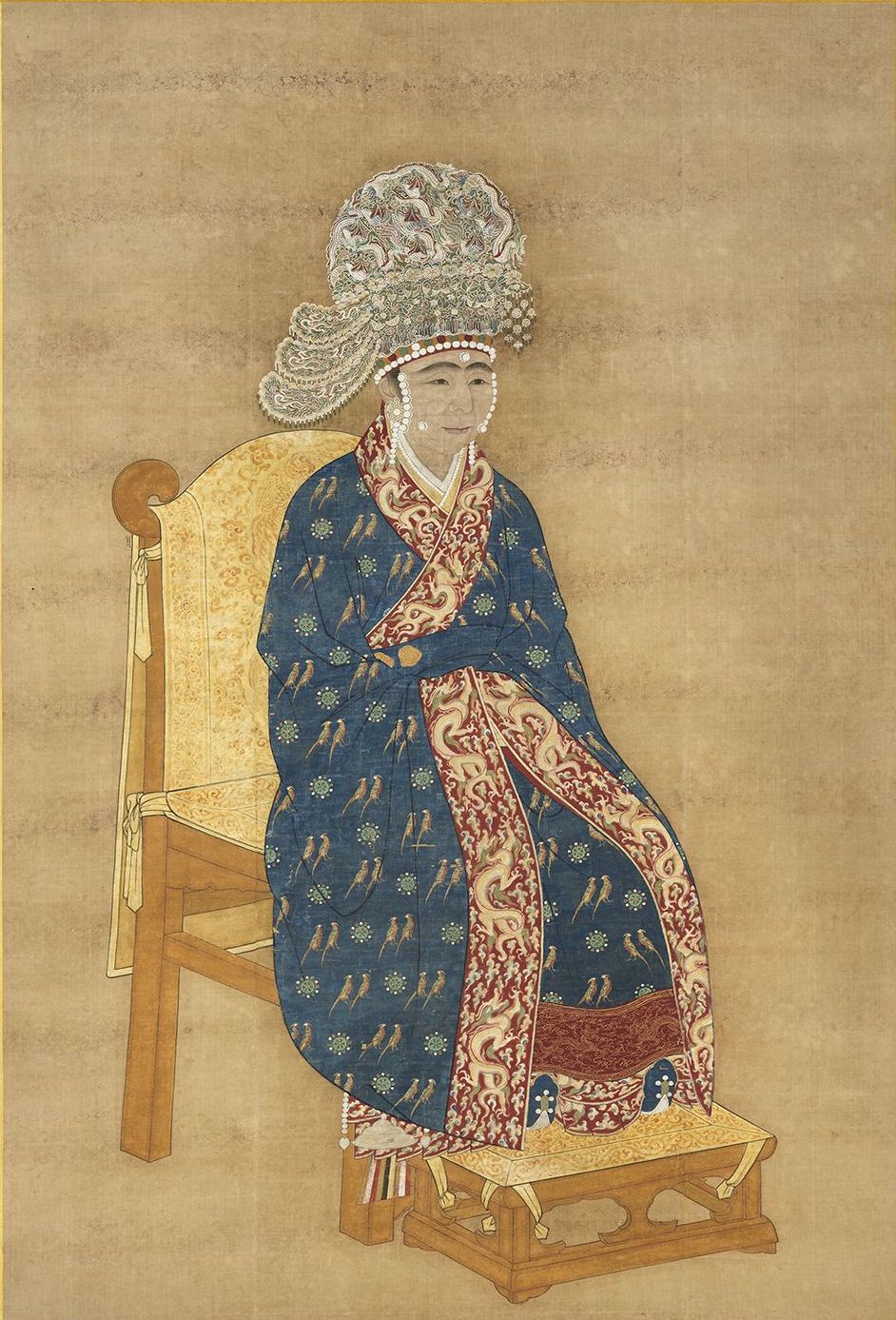
Figure 15 Rear seated statue of Song Yingzong in the National Palace Museum, Taipei
Figure 15 shows the statue of Empress Yingzong in the Nanxun Hall. The queen only sits on the front half of the chair, her waist is straight, her posture is rigorous, her collar is smaller than that of Empress Renzong, and her neck is less exposed. The first impression of her image is that she is young, and her figure is smaller than other queens, even giving people the feeling of being invincible. The thick eyebrows under the heavy crown are eye-catching, revealing an unyielding look. look (Figure 16). Yingzong passed away after four years of reign, and there is only one queen. This portrait belongs to the Gao family, and should be painted when he was young.
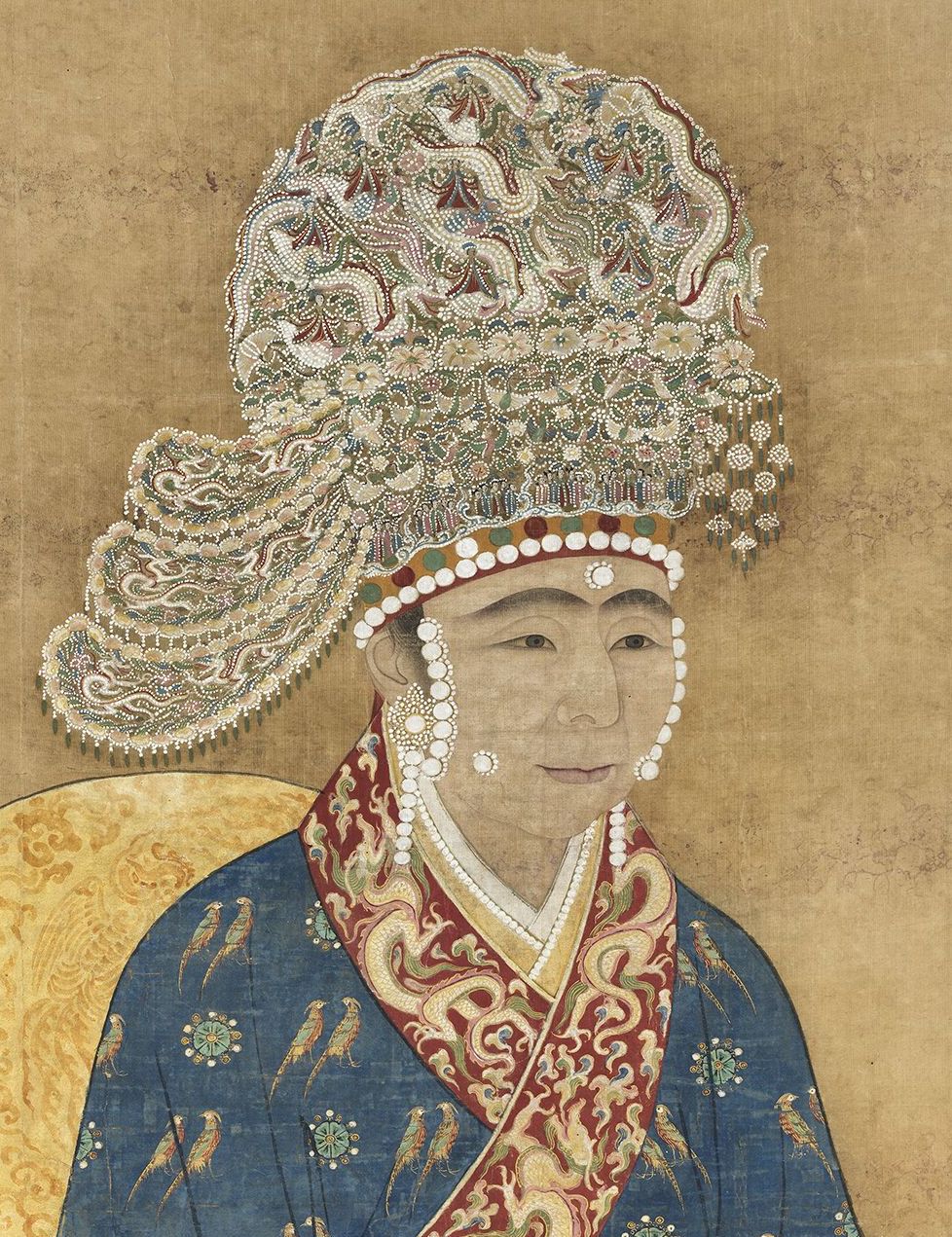
Figure 16 Rear seated statue of Song Yingzong (part) Collection of the National Palace Museum, Taipei
Gao's nickname is Taotao, and he came from a famous family. His great-grandfather and grandfather were all sent to Jiedu, and he was the aunt and niece of Emperor Cao of Renzong. "Tianshengzhong's nursery rhyme cloud: Caomen is good, some are good, Caomen is high, some are high." "Yingzong Yu Renzong is a nephew, after Xuanren Yu Guangxian is a nephew, and they have been raised together since childhood. It is said that the emperor marries a woman, and the queen marries a daughter." This seems to be a good story, but the background is that because Concubine Zhang was favored, Yingzong was forced to leave the palace, that is, the Gao family was only married to a clan with an uncertain future. Although there are relatives and aunts to rely on, Gao should also see through the warmth of human feelings.
Compared with the character of Cao's Mianli Tibetan Needle, Gao's is more powerful. Song people said: "Ci Shengguang presented Cao Empress with great virtue, and Xuanren Shenglie Gao Empress called it serious. During the reign of Emperor Yingzong, he recovered from his illness, but he still could not approach his concubines and imperial concubines. One day, Ci Sheng envoys got close and intimate with affection. He engraved it: 'The official family has been in the throne for a long time, and now the holy bow has recovered, how can there be no attendant left and right?' Xuanren was not happy, and said: 'I know the empress, the bride married the thirteenth regiment training Er, that is, never Marry his official family!'" Gao's remarks, on the one hand, were dissatisfied with the order to get married back then, and on the other hand, he sneered at Cao's.
Shenzong died at an early age, and his youngest son was the heir. It was for Zhezong. The Gao Clan, as the Empress Dowager, immediately appointed Sima Guang and others, overturning the new law, known in history as "Yuanyou Genghua". The previous studies on Gao Hou's actions during this period have been relatively sufficient. In order to avoid the suspicion of the foreign court, Gao learned from the lessons of Empress Liu when he was in power, and tried to take the opposite measures. However, the suspicion still continued. In the late Yuanyou period, Zhezong, who was growing up, began to demand rights, and naturally he was dissatisfied with his grandmother. Zhezong later recalled that when Empress Gao discussed matters with his ministers, "I only saw my buttocks and backs." In the autumn of the fifth year of Yuanyou, Gao Hou was seriously ill, and the ministers came to see him, "The queen said: 'My wife is waiting to die. I have bless the holy bow for many years. I don't know if the officials know it? Does the minister and the world know it?' He was angry and angry. Before Duke Lu could answer, Zhemiao scolded, "Wait for the big defense!" That's it.'"
The disaster began to brew from the "Chega Pavilion Poetry Case". After the high post-employment system, the new party Cai Qu and others were demoted. In the fourth year of Yuanyou, he wrote ten poems at the Chegaiting in Anzhou (now Anlu, Hubei), and the last one was written by Hao Chujun, a Tang Dynasty man. Wu Chuhou said that Cai did compare the empress dowager Gao to a martial empress, so the empress dowager's sensitive nerves were stirred. Cai Qu was deported to Xinzhou (now Xinxing, Guangdong), and soon died in the deportation. The way the party struggle developed into a literary prison, the old party ministers also sensed the danger, and they tried to persuade them one after another, but the Empress Dowager Gao couldn't listen to anything. The Empress Dowager Gao once explained: "It is true that she claims that she has made great deeds, and she is arrogant in making troubles, and the rules are dizzying at the same time." This leads the "Chega Pavilion Poem Case" to the most sensitive matter of choosing the emperor's heir. Empress Gao participated in the establishment of Zhezong and was falsely accused of abolishing the emperor. It was very similar to Cao Empress. In fact, Lv Yijian, the prime minister of Empress Liu, Han Qi, who was Empress Cao, all boasted of the merits of the decision and degraded the Empress Dowager. . Cai Que's threat should be the same as the ministers of the previous dynasty, which made Empress Gao extremely unhappy. After all, the Gao family is not as rich as the Cao family.
After the death of Empress Dowager Gao, Zhezong was in charge of the government, so he summoned Zhang Dun, Cai Bian and other new party ministers, and the accusations against Empress Gao were overwhelming. This round of attack was organized, it was no longer about exaggerating credit or belittling the Queen Mother's personal notes, but a major case with witness testimony, including even Gao's nephew, Zhezong couldn't help disbelief. In the end, the Tongwenguan Prison started, and it was suggested to chase after the high. "The Empress Dowager was sleeping, and when she heard it, she suddenly woke up. She couldn't accept her shoes, and she cried and said to the emperor: 'The sun is serving Chongqing, and the sun is above. The concubine and the empress dowager went up, and the words were very sad, and the superiors felt that they took Dun and Bian and burned them, banning them to celebrate." "Empress dowager" refers to Shenzong to Empress, "Taifei" refers to Zhezong's biological mother, Zhu Shi, Only the mother's cry and remonstrance prevented the implementation of chasing waste high.
At the beginning of the Southern Song Dynasty, Empress Meng of Zhezong rushed to the south and met Gaozong a few years later, "Cheerly said to the emperor: 'The empress dowager Xuanren is worthy of comparison in the past and present. , And the history of the country has not yet been deleted, is it enough to spread the word? My intention is in the spirit of the sky, not hopeless in the emperor. 'The emperor heard the horror. Later, he revised the records of Shenzong and Zhezong." Therefore, this history has been revised according to the official tone of the Southern Song Dynasty. As a result, the high school received high evaluations such as "people think that Yao and Shun are among the women's middle school".
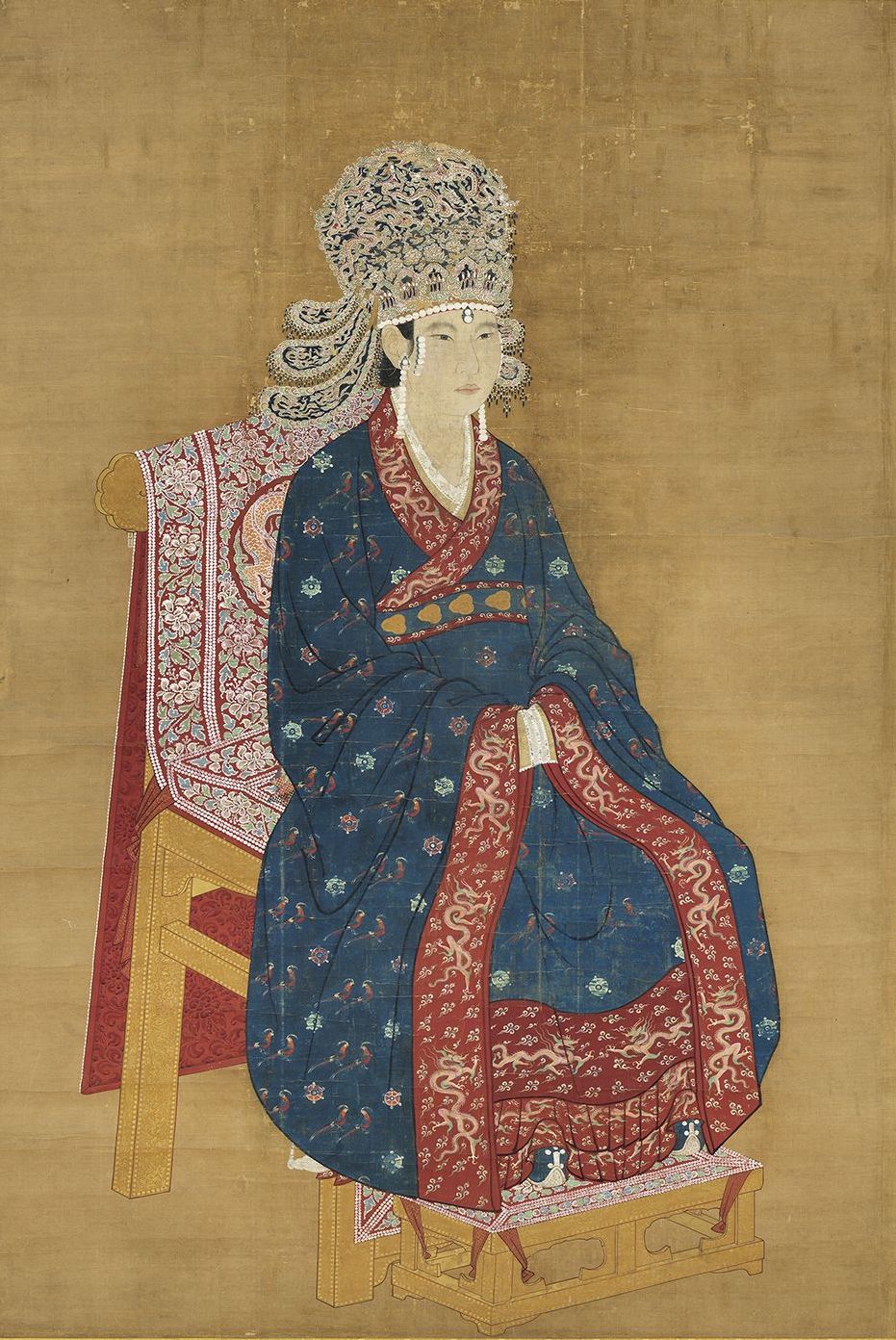
Figure 17 The Sitting Statue of Song Shenzong in the National Palace Museum, Taipei
When the court wanted to abolish Gao's name, he stepped back and remonstrated, showing that he was not a coward. Figure 17 shows the statue of Empress Shenzong in the original Nanxun Hall. During the reign of Shenzong, there was only one empress, namely Qin Sheng Xian Su Xiang. Zhezong's biological mother, Zhu's, and Huizong's biological mother, Chen's, were both mothers and sons. The "Xuanhe Paintings" clearly states that the inner minister Yang Riyan once took pictures for the queen, and Chen's early death can only be traced according to the description. After the Southern Song Dynasty, the Zhu family and the Chen family were still recorded as concubines because of the separation of concubines. This image should belong to the portrait of Xiang Shi, who was still quite young at the time.
Xiang Shi was the great-granddaughter of Xiang Minzhong, who was named after the Zhenzong Dynasty, and was born in Xiang Minzhong as a scholar. Song Notes: During the Shenzong period, Tang Jie’s granddaughter, a political minister, once accompanied her aunt and princess into the palace. “First, there were several women in Qili, and they all walked through the Hall of Shouli from behind. All the companions looked up and read 'Li'. To leave. The wife smiled and said: 'Shouxi is also. Gai takes the righteous ear of Xuan Shi's shouli.' Later, when he was happy, he looked back on the Lord and said: 'Good people's men and women are different in the end.' The empresses of the previous dynasty, such as the Gao clan and the Cao clan, all came from the family of famous generals, and in the golden age of scholars, the Xiang clan was naturally more proud of the scholarly family.
In the third year of Zhiping, Xiang's family married Shenzong, who was still the king of Ying. This marriage should be decided by Empress Yingzong. Although he married into the palace early, Xiang was still only the nominal wife, and had not given birth to a son or a daughter. Prime Minister Zeng Bu once said: "'The Empress Dowager is self-righteous, and she has never given birth to children. Shenzong's concubines and imperial concubines are not many, and I have never heard of competition. When you are in the throne, how can you compete for favor with the next.' It annoyed him even more, but his Shenzong would also do it, and he dealt with his husband and wife very much.
After entering the palace, Xiang's family has been under the shadow of Gao's family, but the relationship between mother-in-law and daughter-in-law has always been harmonious. At the end of Shenzong, Xiang's family "praised Xuanren and decided to set up the emperor. Zhezong established and respected him as the empress dowager." Zhezong's marriage was naturally decided by his mother. Granddaughter Meng Shi. After entering the palace, the two queen mothers personally trained them. Backward said : "When he was first hired, he often taught him the etiquette of women, and even when he walked backwards and sideways, he taught him personally."
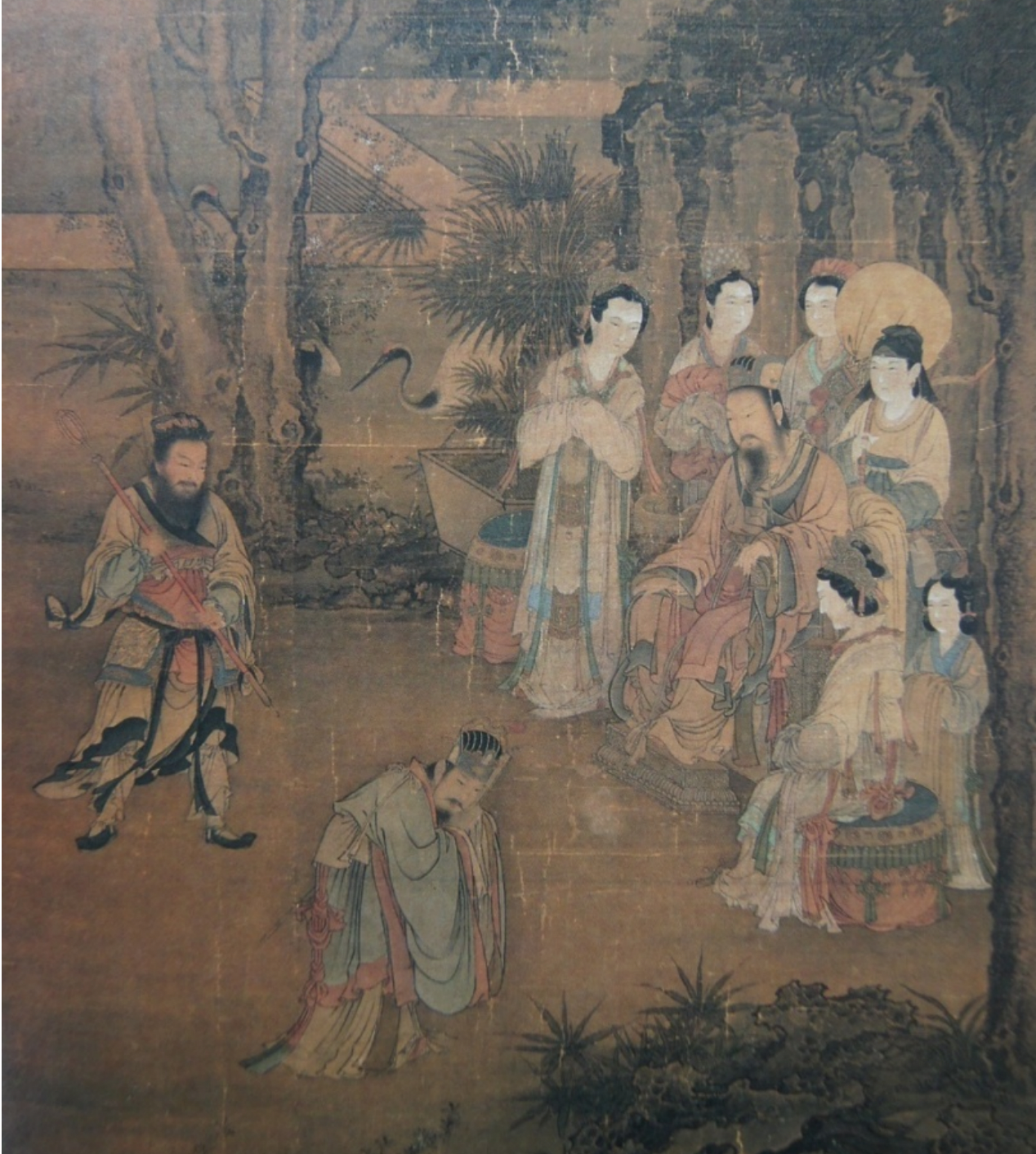
Figure 18 Southern Song Dynasty Anonymous "But Sitting Picture"
Figure 18 shows the anonymous "Chu Si Tu" in the Southern Song Dynasty, which depicts the court story of the Western Han Dynasty. This story is mentioned many times in the remonstrance books of Song scholars. According to the "Historical Records": Emperor Wen traveled to Linyuan, the empress and Mrs. Shen followed, and the concubines often sat together in the palace, but Yuan Anyin held Mrs. Shen to sit, and both the emperor and the concubine were angry. Yuan Anqian said: "Mrs. Shen is a concubine, how can the concubine sit with her! It's a shame that you are disrespectful. And Your Majesty is fortunate to have given her generously. The reason why Your Majesty is Madam Shen is suitable for the misfortune. Your Majesty does not see anyone. ?" So Kaname said. Although this picture depicts historical stories, it does not see the "seats" of the Han people. The Taishi chairs and embroidered piers that the emperor and empress sit on, and the curved collar Fangxin on Emperor Wen's chest, all guide the viewer to wander the Song Dynasty. The explanation may say that the lady sitting on the embroidered pier on the left of Emperor Wen is Mrs. Shen. However, the document clearly states that the queen is present, and this lady is older and wears a phoenix crown, so she should be the queen. To the right of Emperor Wen was a young lady standing in front of the embroidered pier. The embroidered pier at her feet was exactly the same as the queen's seat. It can be seen that the queen concubine once stood side by side, and she was Mrs. Shen who caused the conflict. The "Quizuo" incident also occurred in the Zhezong Dynasty, but the results were different. In the Zhezong Dynasty, there was also a Liu family who was very similar to Empress Liu of Zhenzong. She was "beautiful and talented in the harem" and was favored. She was quickly promoted to beauty and Jieyu. "In the third year of Shaosheng, in the Jingling Palace of the later court, after finishing the work, take a seat, all the concubines and royal servants, Liu Du stood behind the curtain, and Chen Ying'er in the rear pavilion sighed, disregarding it, and the pavilion was full of anger. On the winter solstice, they will go to the emperor. The empress dowager sits in the Longyou Palace, and the empress sits on the red gold ornaments. The system in the palace is only available to the empress. Jieyu sits in him and has a sullen look. The followers are easy to sit, and the empress will wait. The Empress Dowager came out! 'Later got up, Liu Yiqi, searched for each of them to return to their place, or had withdrawn Jieyu to sit, and then slept on the ground. I couldn't return to the court, and weeped to the emperor. The servant Hao Sui said to Jieyu: 'Don't be embarrassed by this. , I would like to give birth to a child early for everyone, this sitting is just right for Jie Yuyou.'" This account depicts the concubine's struggle for the seat vividly.
"In the autumn and July of the second year of Yuanfu, the prince was born and descended. The son of the concubine Liu's concubine is also the son of the concubine Liu. It seems that this Liu has imitated the other Liu." Empress Meng had only one daughter, and the medicine was ineffective, so the queen's sister brought the talisman into the palace to perform witchcraft. Empress Meng was shocked when she saw it, and she took the initiative to tell Zhezong that the emperor just said "this person's ordinary ear". Liu Fei's faction took the opportunity to "make strange words to sell slander", saying that the queen had practiced witchcraft, and it became a big prison. "Juzhi of the Imperial City, arrested and arrested dozens of eunuchs and palace concubines. The list was plundered, and the limbs were destroyed, and some of them had broken their tongues. The prison was completed, and the imperial court secretary Dong Dunyi was ordered to re-record, and the sinners passed the court. No one can speak out. Dun Yi did not write down his pen, and Hao Sui and others threatened him with words. Dun Yi was afraid of harming himself, so he made a statement." The cruelty of this prison is no less than that of the Han Dynasty, and it is even worse Renzong Dynasty. In the third year of Shaosheng's third year , "Yimao, the abolished queen Meng Shi was the leader of Huayang, and the immortal master of Yuqing Miaojing was given the name Chongzhen."
Like Queen Guo, Meng was able to escape only after receiving the sympathy of the scholar-officials. However, he criticized the Queen Mother: "My family controls people to do things that are not right, but I can't insist on it, so I have no faults." The scholar-bureaucrat also commented that "the worry is about advancing the virtuous, how can you compete with the concubines and imperial concubines for favor." It is also the same as Queen Guo, who thinks that it is reasonable to be abolished.
Soon, Zhezong wanted to make Liu his empress. Although he was opposed by scholars and officials, his momentum was far less than that of Renzong. The opposing party was represented by Zou Hao. "The right side said that Zou Hao was very sparse and remonstrative, and he sat down and ran away." Zou Hao once said during the face performance: "It is insurmountable, it is like a crown and shoes. If a concubine has your majesty, it is only a concubine today. A mother is precious to her son, is that not what you call it? And what is it that is not the one who came from it?" Zou Hao broke the fact that the Liu family did not have a son, and the prince was born by His Highness's "successor", which is especially true Liu's hatred. The abolition of Mengshi also used the background of party struggle, and the new party took this case to greatly demote the ministers of the old party. The success of Liu's canonization made the new party proud: "It was a clear day, (Zhang) Dun Wei stood up in the class, and advocated: 'Today's affairs, the highest is the heart of the day, and the next is in line with people's expectations.'"
However, Zhezong Liu's luck was not good enough. First, his youngest son died, and Zhezong suddenly collapsed. Later, Shenzong faced the danger of electing an emperor again, and he had a dispute with his ministers in the court hall: Zhang "Dun said sharply: 'According to the rules of etiquette, the mother and brother Jian Wang should stand.' The Empress Dowager said: 'Old Shen No sons, all the kings are the sons of Shenzong.' Dun Fu said: 'If you are long, King Shen should stand.' The Empress Dowager said: 'King Shen is ill and cannot stand.' Said: 'Zhang Dun, listen to the empress dowager's punishment.' The empress dowager decided to establish King Duan for Huizong."
When Huizong entered the palace for the first time, he had no choice but to rely on him. Looking back at the predicament of Empress Gao, he must have heard bad comments about Empress Cao. Of course, he refused to get involved in danger again. At the beginning of the curtain, he said: "I will return to power when the state affairs are settled." Xiang Shi also does not expect much to do. The author once thought that the backwardness was the only one who was not blamed in the system of the fifth empress dowager. However, after seeing Song Bi records, there are still traces left at the end of the Northern Song Dynasty in the history books of the Southern Song Dynasty, that is, the accusation that Xianghou had inappropriate words and deeds in the selection of the emperor's heir, but it was deleted by the historians of the Southern Song Dynasty, and future generations could not see it.
Not long after the curtain was drawn back, he immediately demanded that Empress Meng be restored, Empress Liu abolished, and that she should be saved under the persuasion of Zeng Bu and others. "On that day, Yaohua returned to the ban with a four-carriage. When he arrived at the inner east gate, the Taimu sent people to go to the Taoist robe with a crown and robe, and then he entered." From then on, Meng was called "Queen Yuanyou", and Liu was "Yuanfu". Queen". During this period, the case of Liu's childbirth by belly was turned up again, and it was not settled at that time. At the beginning of Chongning, Emperor Huizong spoke for Empress Liu personally, so Zou Hao and other old parties were again heavily blamed, and the Meng family was again abolished from the palace.
However, in the later period of Emperor Huizong, Empress Liu had to die. In the third year of Zhenghe , "In February, Empress Dowager Chong'en, Liu's family, collapsed. After taking her talents back, she said, 'Zhang Xian Mingsu made a big mistake! Why don't you wrap your head and go out to hundreds of officials?' , that has the meaning of hanging the curtain. 'That one is called the queen. ... It is discussed that it will be abolished, but the queen mother has collapsed, and the cover is forced by the left and right, and the curtain hooks and hangs." Huizong sat firmly on the dragon chair. It is impossible for her to listen to politics behind the curtain, and the charges placed on her actually include envy of Empress Liu of Zhenzong. Liu Shi was only 35 years old when he died, and he died in an incomprehensible manner. Why did "Left and Right" force Liu Shi to commit suicide? Had a large number of palace maids and eunuchs been victimized by the Meng clan's witchcraft case?
In the second year of Jingkang, the Jin army invaded Kaifeng, and the concubine and the princess were all taken captive to Beimo. Jin Jun retreated, Zhang Bangchang welcomed Meng, and used her to stabilize the situation. Meng Shi told the world in a handwritten letter: "The old vassal of the Yaokang Mansion, the successor of the Song Dynasty. The tenth generation of the Han family, Yiguang Wu Zhongxing; Xiangong's nine sons, but Chong'er still exists. Conspiracy?" Here we use two scriptures, comparing King Kang Zhao Gou to Chong'er, the son of Jin who had recovered his kingdom, and Emperor Guangwu, the founding emperor of the Eastern Han Dynasty. Empress Meng was well educated, and it was possible to write edicts by herself. Kang "The king is the emperor, and he changed the Yuan, and then the curtain was removed from the sun", and he was called the Empress Dowager Longyou.
In the third year of Jianyan, Miao Fu and Liu Zhengyan launched a mutiny, forcing Empress Meng to submit to the government and asking for Emperor Gaozong's youngest son. "The queen mother said: 'Today the strong enemy is out, and I will take a woman and hold a three-year-old child to govern. How can I rule the world?'" While appeasing the rebel general, she contacted the generals of King Qin to help Gaozong successfully reset and return the power to Zhao in time. male heirs.
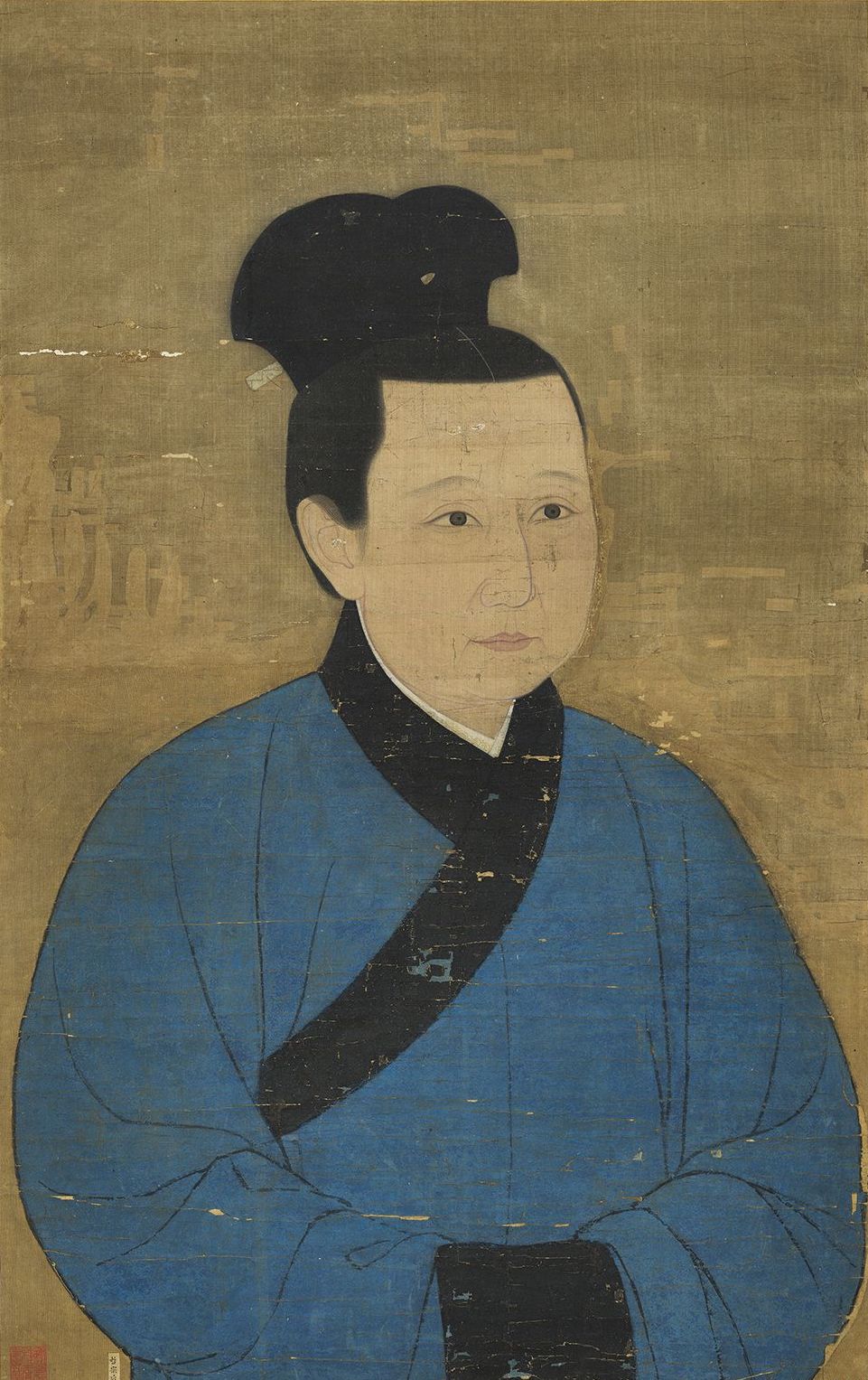
Figure 19 Statue of Empress Zhezong of Song Dynasty in the National Palace Museum, Taipei
Figure 19 shows the portrait of Empress Zhezong of Song in the old collection of Nanxun Hall. The hostess was in her fifties. She did not wear a Huaguan court dress. She dressed as a Taoist nun, with her hair tied in a hairpin and her face turned to the sky. This was undoubtedly Empress Meng. According to the literature, Meng Shi removed the Taoist robe when he first returned to the throne; shortly after entering the palace for the third time, he was wandering all the way, probably wearing the Taoist robe all the time. In April of the first year of Shaoxing, Empress Meng died at the age of 59 and was given the posthumous title of "Saint Xian of Zhaoci". The four-character posthumous names are all the empress dowagers who once ruled under the curtain. At that time, the courtier suggested that Zhaohuai Liu, who belonged to the Zhe clan, should be removed from the throne. Still with the Zhe clan, but second to the Meng clan.
When the Southern Song Dynasty had just settled down, Empress Meng raised the issue of the historical records scolding Empress Gao. After Shaoxing, the revision of history books was put on the agenda. At the same time as Gao Empress Zhaoxue, the account of Meng Empress was also rewritten. Emperor Gaozong talked about the witchcraft case many times. Zhao "Ding said: 'If it really exists, it's just a matter of women seeking flattery. It's different from witchcraft and curses in previous lives. Why is it a serious crime.' The above said: 'Of course.'" To set the tone for the revision of the history books: that is, Meng's lack of women's morality, but his faults will not be abolished.
In Zhang Geng's "Picture Essence Consciousness" in the Qing Dynasty, I have seen Yuan Wang Zhenpeng's "Picture of the Virgin and Concubine of the Past Dynasties", which depicts eight mothers in total, "Song had four of them, and Empress Meng had the premonition, then the wise voice of the empress would spread far and wide in the The enemy country is gone." The four empresses of the Song Dynasty are like Empress Dowager Du, Empress Renzong, Empress Cao, Empress Yingzong, Empress Gao, and Empress Meng. Du was the mother of Taizu, the founding monarch, and the other three queens had all served under the curtain. When the scene of Empress Meng sitting at her desk and making an edict is depicted, Empress Meng's credit is mainly to confirm the legitimacy of Zhao Gou's ascension to the throne. Shenzong only participated in politics for six months, not to mention Shang Ke, and it is especially strange that there is no most important Zhenzong Empress Liu. Not choosing Zhenzong Liu should have something to do with Song Shifu's evaluation of her.
As soon as there is trouble, Empress Meng will inevitably be accused of being ambitious. In December of the fourth year of Jianyan, Fan Tao "Shangshu Li (Meng) Zhonghou and Tai Mu jointly raised the son of Emperor Yuansheng, and the other room in Tibet." The so-called "Emperor Yuansheng" refers to the captured Qinzong, Fan Tao once As the military governor of Ningyuan, Meng Zhonghou was the nephew of the Meng family, and he used to be his subordinate. At the beginning of the Southern Song Dynasty, the court was still precarious, and Meng Shi was reported by the Jiedu envoy, which shocked him. Gaozong dismissed it, saying: "Yingzong, Cisheng, Zhemiao, and Xuanren are all alienated by people, so they are suspicious and slandered, and I have to punish two dynasties." It can be seen that the situation at that time was similar to Yingzong and Cao, Zhezong. Contradictions with Gao. After April, Meng died of illness.
Since Empress Liu of Zhenzong, the four empress dowagers have been under the curtain one after another, and the dynasty needs these older women to prove the legitimacy of the emperor. For Empress Liu, the real emperor, in order to show merit to the new emperor, he exaggerated the role of a certain person or group in preventing female disasters, which often smeared Empress Liu's image, or exaggerated the basic facts, or even fabricated the facts. Even the highly rated Empress Cao and Empress Zhezong Meng were accused or suspected of deposing the emperor without authorization, and the accusation against Empress Yingzong reached a peak, and the title of Empress Dowager was almost abolished. Such a political atmosphere naturally distorts the historical record of the Queen Mother's reign. When people today investigate this period of history, they need to identify historical materials. It seems that there is no need to learn from the scholars and officials, and follow them to blindly accuse the queen mother of ruling.
(The author of this article is a professor at the School of Humanities of Shanghai Normal University, and the original title is "Portrait of the Fifth Empress Dowager of the Song Dynasty and the Social Gender Concept in Historical Writing")
